Middle School Student Handbook 2023-2024

Contact Information
Middle School
700 Tai Tam Reservoir Road, Tai Tam
Tel: 3149-7200
Fax: 2899-0809
To direct dial, dial 3149 followed by the four-digit extension.
School


Middle School
700 Tai Tam Reservoir Road, Tai Tam
Tel: 3149-7200
Fax: 2899-0809
To direct dial, dial 3149 followed by the four-digit extension.
School
At HKIS Middle School, we prioritize our students’ well-being and overall experience. We aim to inspire students to dedicate their minds to inquiry, hearts to compassion and lives to service and global understanding. We foster personal growth in collaboration, creativity, and resilience, aligning with the school’s vision of developing a community of creative and resilient learners.
At the Middle School, we welcome students into a secure, nurturing environment that fosters growth and learning. They are encouraged to develop the attitudes, values, and habits of mind that will enable them to make informed decisions in their academic pursuits and their lives beyond the classroom. The Middle School years are a time of increasing independence, during which students are empowered to take charge of their learning and explore new ideas. As they engage in inquiry and discovery, they gain a deeper understanding of their place in the world and the importance of respecting others’ perspectives. Through collaboration and teamwork, our students learn to appreciate their peers’ unique strengths and contributions, setting the stage for success both in and out of school.
At our Middle School, we celebrate various themes throughout the school year that align with our values and mission.
Belong: Every student should feel a sense of belonging as a member of the Middle School.
Collaborate: All students will use a variety of methods within diverse environments to communicate and respectfully work together to support individual learning and contribute to the learning of others.
Create: All students will be imaginative thinkers, exploring passions and challenges using novel and innovative strategies.
Be Resilient: All students will demonstrate courage and confidence in response to challenges and show the ability to adapt and thrive.
The middle years are a time of exponential growth, and the talented and dedicated HKIS staff work in partnership with parents and students to maximize potential in both academic and social/emotional development at this crucial time. Through the information in this handbook, we hope you will get a sense of the increasingly sophisticated thinking and learning students are involved in at the Middle School level. Please take the time to read through this information carefully. If you have any questions about this or anything during the year, do not hesitate to ask a teacher, counselor, or PCG advisor or come by the Middle School Office and speak with us. Our door is always open to you. We hope this school year is happy, full of learning, friendships, and personal discovery.
Have a great school year!
Ms. Casey Faulknall Middle School Principal
HKIS as a community is committed to building and sustaining a welcoming and secure learning environment in which individuals can fully realize their potential in a climate of mutual respect. HKIS believes that parents and educators share the responsibility for creating a partnership that fosters children’s learning. Together we play a formative role in the development of a child’s sense of justice, equity and the worth of all members of our school community.
It is our hope that these guidelines will provide a useful framework to promote effective and appropriate communication within the HKIS community adhering to the HKIS policy on Promoting a Culture of Respect (Policy 3170, available on DragonNet).
We recognize that effective partnerships are characterized by clearly defined responsibilities, a shared commitment to collaboration, open lines of communication, mutual respect, and a common vision of the goals to be achieved.
The responsibility of the school (teacher, administrators and support staff) is to:
• Provide a safe environment that supports the development of positive learning attitudes, habits and values that are consistent with the mission of the school
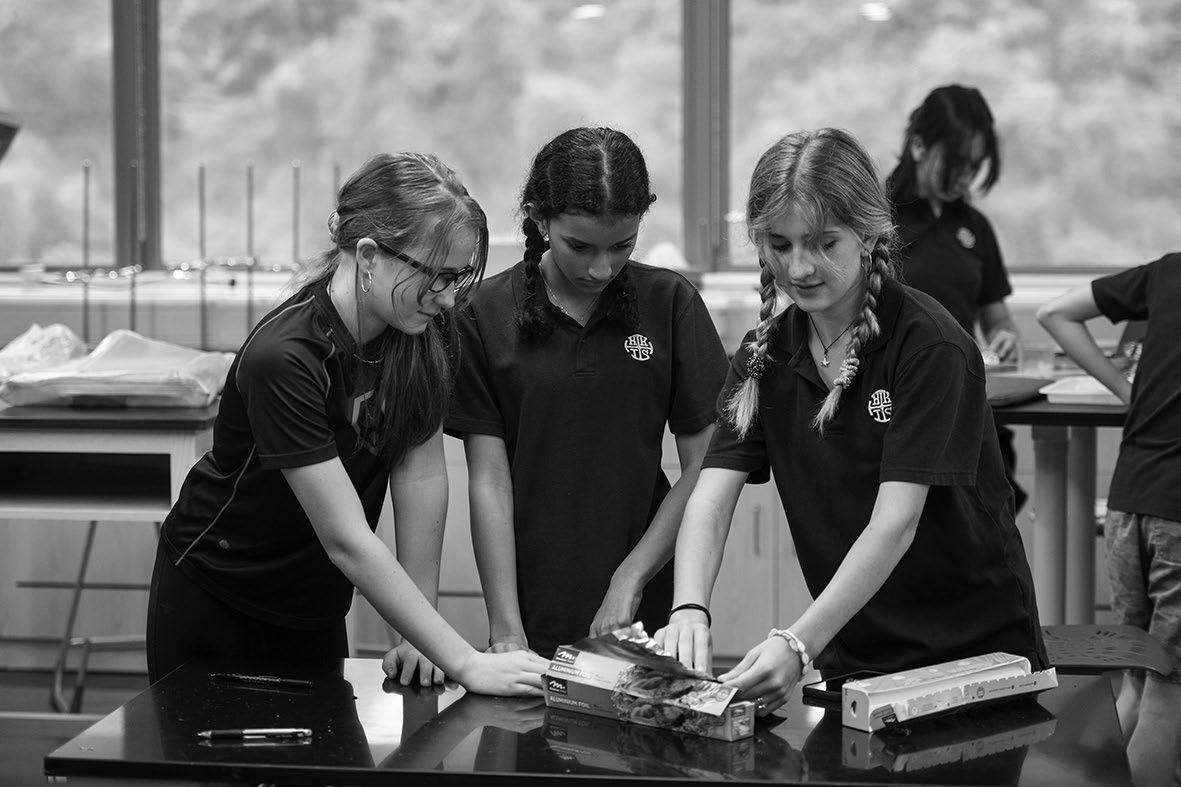
• Provide high quality curriculum and instruction in a supportive environment
• Encourage students’ growth as responsible, independent and respectful individuals
• Model integrity, academic curiosity, responsibility and creativity.
• Communicate and work with parents as partners in ensuring student achievement reflective of the HKIS Mission and Student Learning Results
• Provide timely and clear information about school programs and events
The teacher’s responsibility is to:
• Explain the curriculum and approach to learning in the classroom, expectations, methods of assessment and reporting of learning to students and their families
• Report student progress regularly to parents (the frequency of communication is determined by each division)
• When appropriate, work with parents, counselors or learning specialists to provide a team approach to support students
• Communicate how parents can support what is going on in the classroom
• Share observations, interests and concerns during emails, meetings and parent-teacher and student conferences
• Invite parent involvement in the learning process. For example: participating in class activities, attending school events, inviting parents as guest speakers or connecting with the wider HK community
• Respect family needs and values e.g. family time
• Invite input and feedback from parents
• Respond in a timely fashion to emails or phone calls from parents
The parent’s responsibility is to:
• Provide a home environment that supports the development of positive learning attitudes, habits and values that are consistent with those of the school
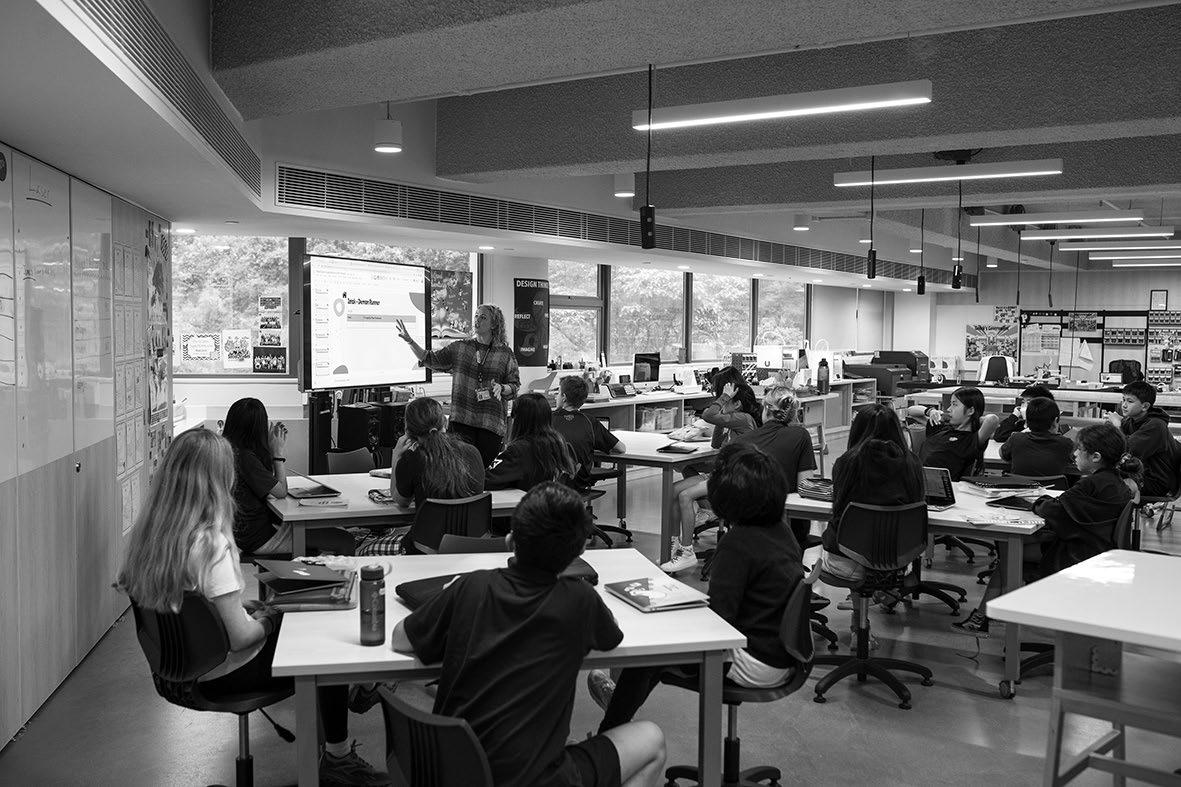
• Play an active part in their child’s learning e.g. monitoring attendance, homework completion.
• Help their child capitalize upon successes and learn from setbacks and failures as part of his or her growth process
• Review, with the child, information provided by the school that provides insight into student learning and growth. For example: assignment feedback, report cards, conference information, emails
• Communicate with the teacher, as developmentally appropriate, if the child is having problems with learning
• Inform the school of any family or home situation that may affect a child’s learning or behavior
• Participate in the decisions about their child’s education
• Be responsive to requests for input, feedback or opinion.
• Stay informed by reading the school newsletter, class updates or accessing the website.
• Attend, as family responsibilities allow, parent events or education evenings. These include: parent coffees, division parent forums, parent-to-parent meetings, curriculum nights and parent feedback events
• Participate, as family responsibilities allow, in school organizations such as P.F.O., P.A.G. and Booster Club and school events
• Respect a teacher’s academic efforts by minimizing a child’s absence from school for non-critical reasons
It is expected that all members of the HKIS adult community will abide by the following principles for verbal and nonverbal, written and oral communication at HKIS:
• All communications demonstrate the assumption of good intent and the goal to be constructive
• The tone of all communications demonstrates care, respect for others and sensitivity for diversity
• Email is the preferred form of contact, unless an issue is urgent or would be better addressed through face to face or phone contact.
• Reasonable time is allowed for responses to communications.
• Confidentiality is respected.
• Contact the teacher directly if you have questions or concerns about your child or the instructional program in your child’s class.
• Contact the Principal or Associate Principal if the teacher’s response to your first contact does not sufficiently address your concern or if your concern is at the school level.
• Contact the Head of School or Associate Head of School if the Administrator’s response does not address your concern.
Dealing with disagreements requires respect and discretion by both the school and parents. Both parties should respectfully seek to gather accurate information and resolve problems through appropriate channels of communication. Each adult shares the responsibility to provide a collaborative decision making model in the best interest of the child – be prepared to listen, contribute, negotiate and support decisions, and operate from the assumption of good intent.
Confidentiality contributes to maintaining trust between parents, teachers and administrators. All adults should use discretion about when, where and with whom issues are discussed. It is important that all adults do not discuss individual children, teachers or families in inappropriate public or social situations. (See the section “Promoting a Culture of Kindness and Respect” for more.)
Social media is a great way to share positive news and events about HKIS, as well as to communicate factual information about policies and school life with others in our community. In line with the HKIS Community Partnership and Communication Guidelines in school policies, all communications on such channels must assume good intent, be constructive, and communicate care, respect for others, and sensitivity for diversity.
The school would also like to emphasize that specific student issues are best discussed privately with school representatives, not on group chats (WhatsApp, We Chat, Facebook Messenger, mass emails) or public platforms (e.g.: closed or public groups or pages on Facebook, Twitter). Members of our community should not lobby for changes in policy or procedure on these platforms. Please refer to the Sequence of Communication Channels in the HKIS Community Partnership and Communication Guidelines for the appropriate procedures on how to address concerns at the school.
Posting photos and stories on social media accounts are a wonderful way to share life at HKIS with friends and family. For the safety and privacy of our students, please be reminded that photos taken on campus should not be shared on any public profiles or media outlets without the consent of the school. Please refer to HKIS’s Social Media Policy (Policy 3180, available on DragonNet) for more details.
HKIS follows Hong Kong’s Education Bureau (EDB) operational requirements for schools during disruptions to school operations, such as the Covid-19 pandemic or inclement weather. In addition, HKIS has developed systems and procedures to keep our community safe while minimizing disruption to student life and learning. Visit HKIS Central on DragonNet to view the latest information and FAQs, including HKIS’s Risk and Response Matrix.
In the event of school closure relating to health or other disruptions, virtual home learning will resume where possible. Severe weather protocols remain unchanged. Parents and students should refer to DragonNet for links to these resources.
Guests invited by HKIS may access campus with an appointment registered through our Visitor Management System (VMS). They will be issued a VMS barcode letter which they should bring to expedite registration at the gate. Guests will also be required to register their HKID card with security upon entry. HKIS will issue a pass to visitors, which they are required to wear while on campus. Parents may enter campus using their HKIS ID card.
NOTE: If you forget your HKIS ID card, you will be required to sign in as a visitor.
The Annual Fund Committee is a parent-led organization that develops awareness and encourages participation in the HKIS Annual Fund, a philanthropic fund to support and enhance the operation of the school. The AFC works with the Advancement Committee, a committee under the HKIS Board of Managers. To join or find out more about the Annual Fund Committee, please send a message to annualfund@hkis.edu.hk.
All HKIS parents, students, and faculty are members of the PFO. There is no need to apply.
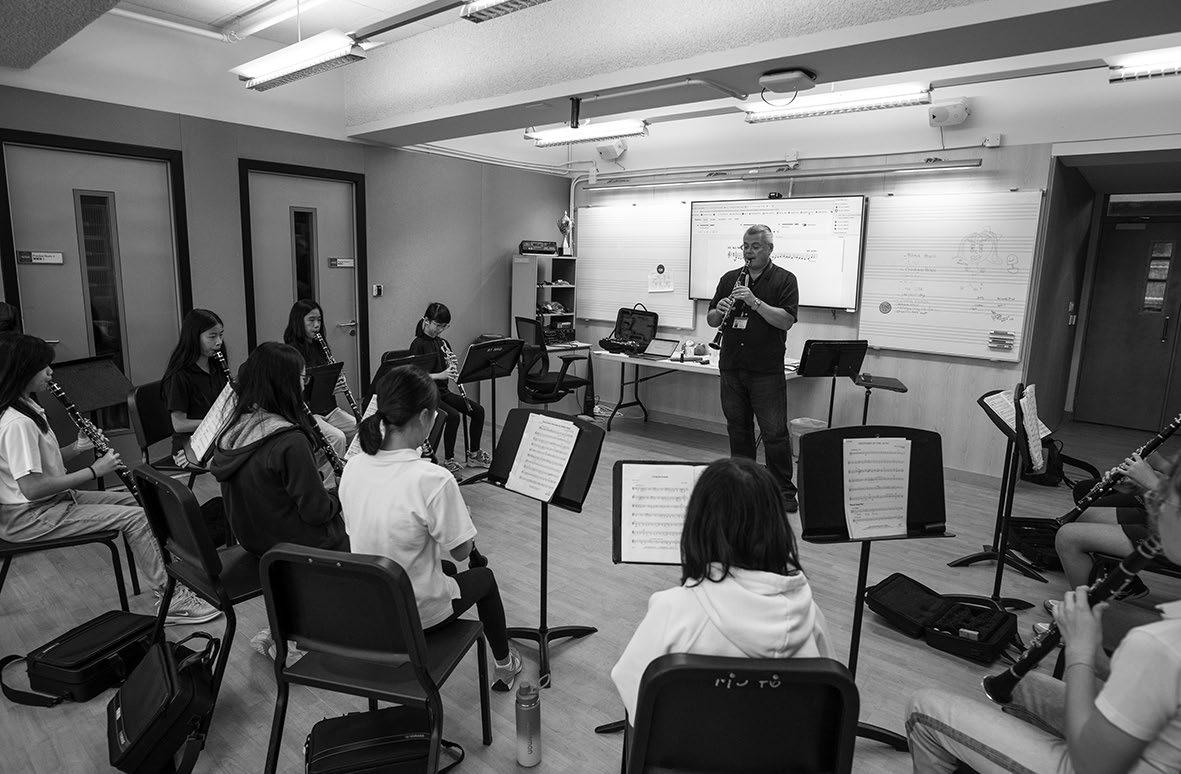
The PFO’s main purpose is to build a positive community by involving and engaging all parents, students, and faculty. In addition, the PFO helps foster positive communication and exchange between school and home. All funds raised through its various activities and events go entirely back to the school, as the PFO is a 100% volunteer-run organization.
The PFO organizes many events throughout the school year. New families joining HKIS are integrated into the community with a New Parent Breakfast event in August and a New Parent Welcome Reception in January. New parents are invited to join the New Families FaceBook group where they can interact and connect. Twice a year, the PFO brings the entire school community across all four divisions together: during Pumpkin Festival in Fall and World’s Fair in Spring.
The PFO also sponsors and organizes the LP Book Fair, Teacher Appreciation, and Chinese New Year celebrations. Furthermore, the PFO supports various division-specific activities through the allocation of funds to projects proposed by each division, working collaboratively with our four divisional representatives.
Parents are invited to volunteer for PFO activities and are welcome to do so by emailing the PFO at pfo@hkis.edu.hk or pfo.volunteers@hkis.edu.hk. Find more details about the PFO in the “Community” section of the HKIS website.
Sixth Grade Dyads
(Math/Science) (LA/SS)
Mr. Greg Edwards
Mr. Ryan Muir
Ms. Jessika Purvis
Ms. Paulina Kociolek
Mr. Kyle Keener
Mr. Sean Telles
Ms. Alex Cleary
Ms. Praise Ma
Mr. Tristan Benson
Ms. Kirsten Rendell
Seventh/Eighwth Grade Academic Teams
(Social Studies, Math, Language Arts, and Science)
Academic Team #1
Ms. Trisha Hofmann
Ms. Sheena Naggea
Mr. Tom Banaszewski
Mr. Scott Simon
Academic Team #3
Mr. Sean Knoflick
Mr. Brian Elshoff
Ms. Danielle Richert
Ms. Sheri Gates
Academic Team #5
Mr. Gabriel Price
Ms. Leigh Simon
Ms. Madi Elshoff
Mr. Amar Sharma
Academic Team #2
Mr. Tim Lyall
Ms. Pauline Tang
Mr. Michael Currinder
Ms. Caroline Pringle
Academic Team #4
Ms. Clare Dickie
Mr. Ralph Giordano
Ms. Nicole Whitley
Ms. Karen Chan
Drama
Choir
Band
Strings
Performing Arts Teacher Assistant
Mr. John Mulhall
Ms. Laura Pihowich
Mr. Christopher Ward
Dr. Mark Pihowich
Ms. Amanda Staver
Ms. Brittany Kubiak
Mr. Edwin Gouw
Physical Education and Health
Physical Education
Mr. Mathew Brown
Mr. Joe Nolasco
Mr. Michael Coleman
Ms. Katie Elliot
Ms. Rita McDermott
Ms. Emma Carroll
Physical Education Assistant
Adventure Learning Coordinator
Religion
Science Technician
Student Support Team
Learning Specialists
Visual Arts Design Technology (VADT)
Visual Arts
Visual Arts Teacher Assistant
Design Technology
Design Tech Teacher Assistant
Technology Coach
Culinary Arts
Culinary Arts Teacher Assistant
World Languages
Spanish
Mandarin
Ms. Brianna Bedessem
Ms. Jules White
Mr. Victor Fung
Ms. Megan Godek
Ms. Jinny Chao
Mr. Josh Wood
Mr. Barry Johnson
Ms. Klara Lau
Counselors
Mr. Kyran Lo
Mr. Calvin Leiu
Mr. Marcus Kroese
Ms. Iantha Scheiwe
Mr. Robert Dei
Ms. Megan Rowe (G6)
Ms. Suzi Wah (G7)
Mr. Nathan Kellar (G8)
Ms. Faith Ro (G6)
Mr. Kenny Clark (G7)
Ms. Laura Cowan (G8)
Mr. Cecilia Michán
Mr. Will Li
Ms. Michelle Sun
Mr. Edward Dong
Ms. Daisy Shen
Ms. Mei Xu
Ms. Frances Zhang
School Psychologist
Ms. Tracy Hardister Nurse
SSC Secretary
Library
Teacher Librarian
Senior Library Assistant
Library Assistant
Audio Visual Technician
Client Support Specialist
Administration
Principal
Associate Principal
Executive Secretaries
Ms. Camille Yam
Ms. Carol Lai
Ms. Maureen McCann
Ms. Punam De Manny
Ms. Gloria Tang
Mr. Ricky Lai
Mr. Des Wong
Ms. Casey Faulknall
Mr. Alastair Jackson
Mr. Stephen Conroy
Ms. Noelle Au Yeung
Ms. Patra Lam Teacher Leaders are underscored
Each student is placed in a small group of students(12-13) along with a teacher to form a Pastoral Care Group (PCG). PCGs are committed to creating a safe and supportive space where all students can thrive. We aim to foster a sense of belonging and community by promoting positive peer and adult relationships. Our mission is to support the holistic development of each student by addressing their social, emotional, and academic needs. We strive to empower students to be their best selves by providing guidance, encouragement, and opportunities for growth. Students will meet with their PCG three times per week and extended periods throughout the year.
Each PCG belongs to one of the five Middle School Houses. Our school houses are a community within the Middle School community providing a smaller structure of about 150 students across Grade 6-8. Our houses are named after significant locations in Hong Kong: Central, Lantau, Peak, Tai Tam, and Shek O. Our house structure helps create a sense of community, promotes healthy competition, and provides opportunities for leadership and teamwork.
The Student Life Leader coordinates our House Structure. Through the year, the Student Life Leader in cooperation student House Leaders plan house gatherings and spirit gatherings. These gatherings help to build community spirit and help students to feel connected to their house. Grade Level Leaders help to coordinate PCG experiences, assemblies and activites throughout the year.
Self-Motivated Learning Projects represent HKIS’ Vision in action. In the Spring, each student has the opportunity to delve into a passion or a curiosity while extending their learning beyond the classroom. Dedicated time is available during our third clubs rotation which supports students in pursuing an area of interest. All teachers act as a teacher-facilitator, and students are grouped based on their topic of choice. Students are expected to share their learning publicly during Student Led Conferences.
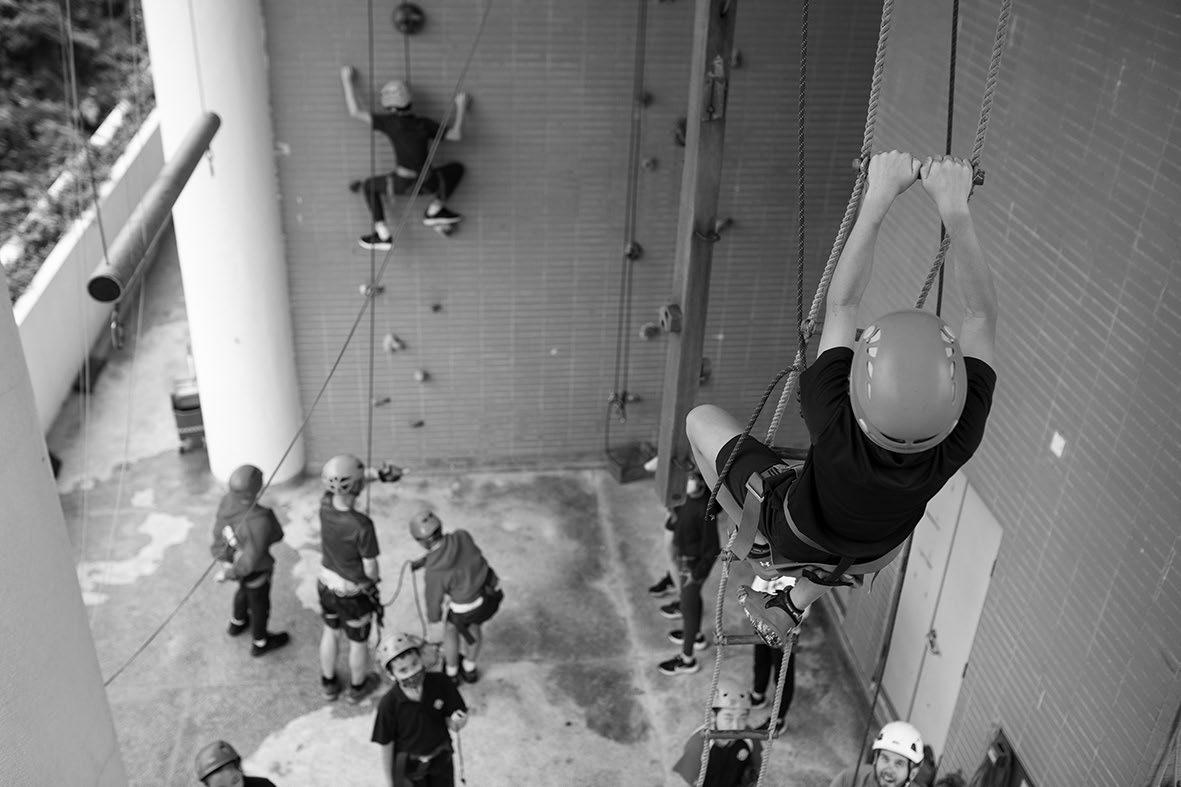
We believe that experiential learning opportunities fundamentally impact our students’ understanding of themselves and the world around them. Each academic year, all Middle School students participate in a week of experiential learning activities beyond the school setting that are designed to enrich the social, emotional, learning with respect to self and social awareness, self-management, responsible decision making, and relationship skills. Each of our PEAK trips has been planned to support students’ growth in line with specified Student Learning Results (SLRs), with a focus of our Chinese Culture SLR in Middle School. Students attend PEAK with other students in their grade level. Students in Grade 7 and Grade 8 will have the opportunity to make selections of the trip that is most appropriate for them and their family. All grade levels will have trip options that are non-residential and remain in Hong Kong.
Grade 6 – Discover Hong Kong
Grade 7 – Southern China Explorations
Grade 8 – Wider China Adventures
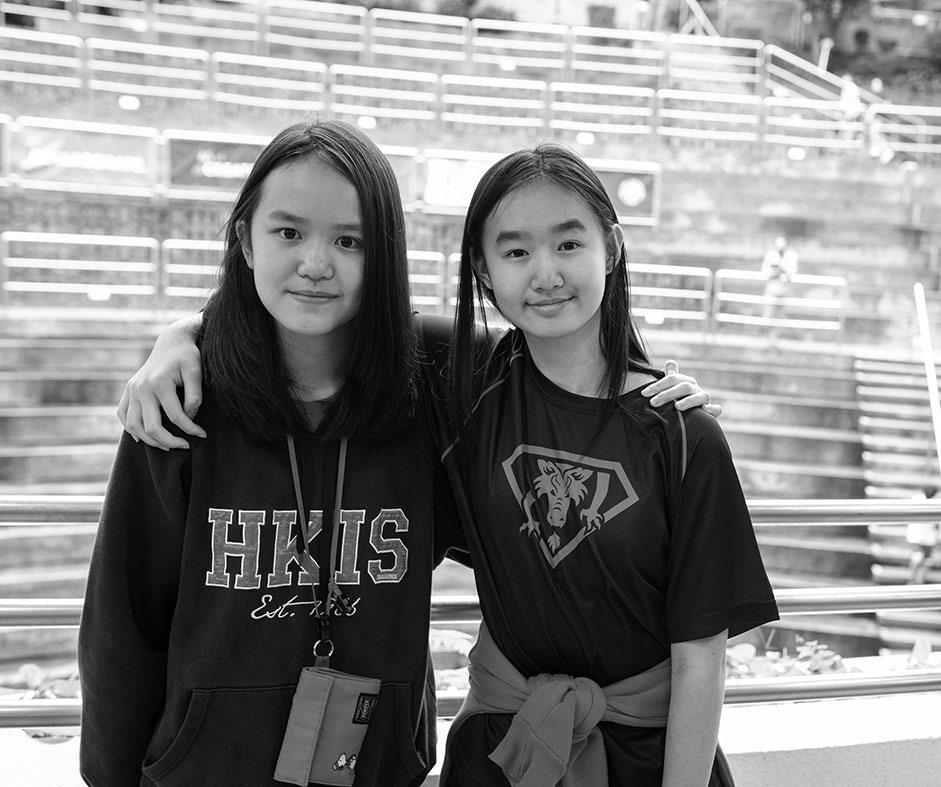
At the Middle School division we believe that:
• Students benefit from feedback that describes their level of learning against standards.
• Feedback on approaches to learning should be given separately.
Middle School reporting is based on the following two rubrics. These rubrics outline our academic expectations and learning habits. Further details of these principles and their corresponding practices are available on DragonNet.
The student demonstrates emerging proficiency in the standard.
The student is beginning to demonstrate foundational knowledge and skills.
The student demonstrates developing proficiency in the standard.
The student demonstrates the foundational knowledge and skills required to exhibit the standards but is not yet exhibiting proficiency in the standard.
Self-Motivated Learning
Willingly applies a variety of learning and motivation strategies throughout their learning process.
Collaboration Uses a variety of methods within diverse environments to communicate and respectfully work together to support individual learning to contribute to the learning of others.
Respect & Responsibility Organized and prepared to learn. Respects others and the learning environment.
The student exhibits proficiency in the standard.
The student demonstrates the targeted understanding of knowledge and skills.
The student exhibits depth in the standard. The student is able to transfer learning to authentic or atypical situations. The student can draw upon their conceptual understanding to solve real world problems that show a level of creativity and sophistication.
The purpose of assessment is to promote learning. Assessment is a process of gathering a variety of evidence to identify a student’s level of attainment of learning goals. The evidence helps students understand their strengths and how they can improve their learning and helps teachers understand how they can improve instruction. In addition, assessment forms the basis of reporting to students and parents the current level of students’ attainment of learning goals. A robust system of assessment is relevant and accurate, ongoing, informative and timely, and understandable to all.
Assessment is tied directly to the learning goals of a given course or program. The goals are made explicit in the course’s standards and benchmarks as well as the schoolwide SLRs. Expectations around these goals are clear for all students as developmentally appropriate. Students need to know the level of attainment they are expected to reach as they work toward these clear learning goals. Likewise, measurement of attainment in these goals needs to be accurate, using a variety of methods appropriate to measure the targets set and appropriate to the age of the students.
Ongoing
Assessment is an ongoing process built into the cycles of teaching and learning. Though there are times (such as final exams in upper grades) when assessment is a culmination of learning; in general, assessment is incorporated into teaching and learning, and the results of assessments are used by teachers and students to guide future learning.
Results and feedback are most useful when they are provided as close to the assessment as practical, so students and teachers can employ strategies for growth. Given the opportunity to reflect on results, students are able to set goals for future learning and performance of learning tasks that enhance progress.
As developmentally appropriate, students are fully involved in the assessment process and are able to understand and explain the ways in which assessment evaluates and enhances their learning. (For more, see HKIS’s “Shared Philosophy of Education,” available on the HKIS website.)
Home learning is any activity or assignment directed by the teacher to be performed outside the classroom that may include practicing skills learned in class, reading, studying for assessments, or completion of assignments. We believe that family and leisure activities are important, and the amount and type of home learning assigned should reflect this belief. We acknowledge individual student differences in ability, achievement levels, and needs, and that some students may take more or less than the recommended time to complete assignments. The purpose of this home learning policy is to guide
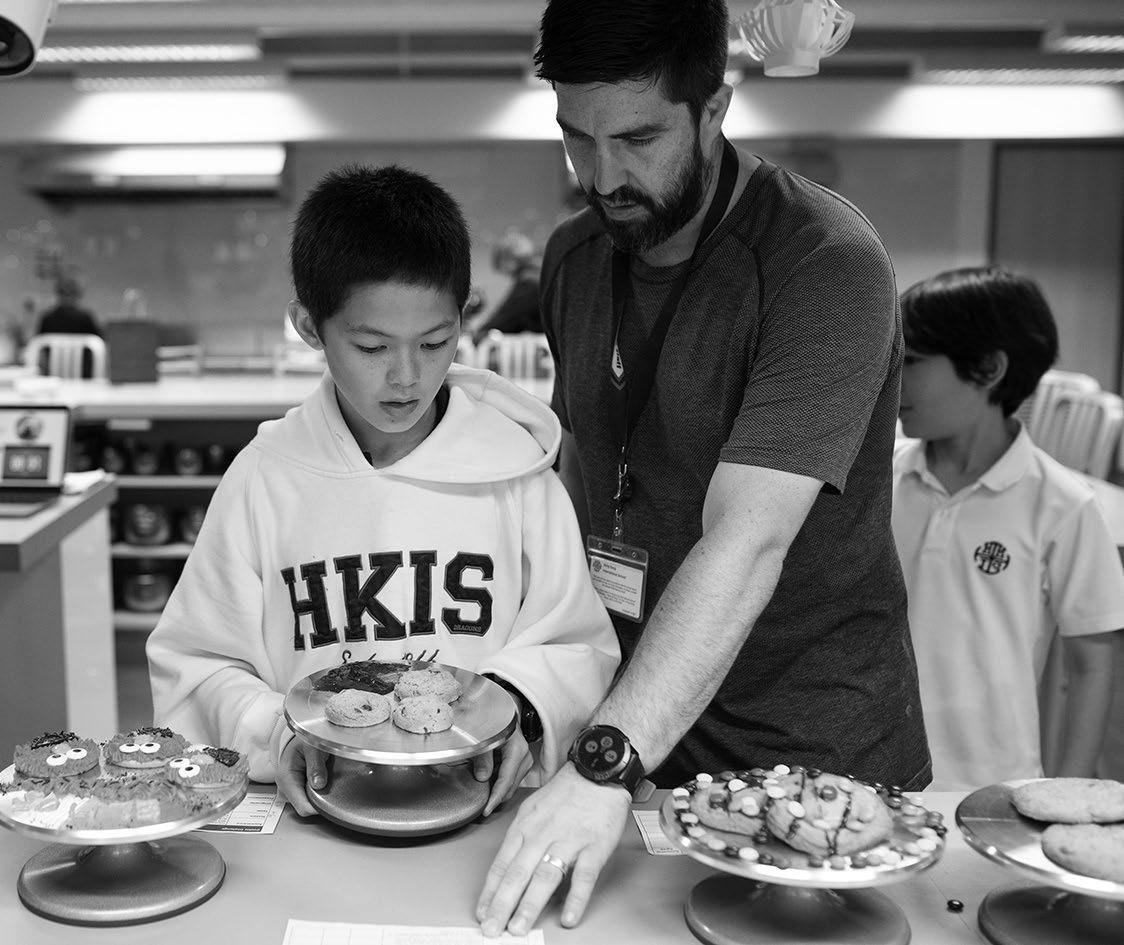
teachers, parents, and students in ensuring that homework is meaningful and supports the learning experience for all students.
Timely, successful completion of home learning is a part of each student’s work habits evaluation. It is important that students complete the home learning independently so that teachers can obtain an accurate assessment of understanding.
Questions regarding home learning should be addressed to individual teachers. It is the student’s responsibility to complete and turn in home learning as assigned.
The primary purposes associated with home learning are as follows:
• To give students a chance to review and practice what they have learned
• To provide an opportunity to demonstrate understanding
• To preview new information that will be studied soon
• To reinforce and extend concepts introduced in class
• To activate prior knowledge and check student understanding
Time dedicated to home learning refers to focused, on-task, work time. The maximum amount of home learning per grade level on a daily basis are as follows:
Grade 6 – 60 minutes daily
Grade 7 – 70 minutes daily
Grade 8 – 80 minutes daily
Actual time required to complete assignments will vary with each student’s study habits, academic skills and selected course load. If a child is spending an excessive amount of time on home learning, the parent should contact his/her child’s teachers. A student’s total daily home learning should not exceed the guidelines. We believe that weekends and vacations are for family time and/or non-academic pursuits. With this belief in mind, teachers will not assign home learning that require(s) a weekend and/or vacation time to complete the task.
We believe that developing a life-long habit of reading for pleasure is essential. In addition to regular home learning assignments, Middle School students are expected to read each night.
What I Need time provides an opportunity for students to focus on develop self management skills and receive individual help from teachers. WIN time occurs during Academic Team time (G7&8) and Dyad time (G6) in the regular school day. Students may be required to attend before or after school Office Hours by appointment or by teacher request.
If a student is absent for reasons other than illness, family emergencies or significant personal reasons, parents should note that the HKIS board approved policy does not require teachers to provide makeup work. However, in order to keep learning consistent for students, teachers typically provide make-up work.
The Middle School offers academic and service recognition programs to encourage achievement in these two areas. The Honor Roll recognition is available to every Grade 7 and 8 student. The Presidential Academic Excellence Award and Outstanding Citizenship Award are offered to Grade 8 students.
Qualification for Honor Roll is recognized each semester for eligible Grade 7 and 8 students. The criteria include percentage requirements for students’ levels of performance and Approaches to Learning in all classes. Each standard is weighted equally. In terms of academic achievement, students must be Exhibiting or Exhibiting Depth in all Reporting Categories in each class. In addition, students must consistently meet Approaches to Learning expectations to earn an Honor Roll designation. Percentage points are rounded to the nearest tenth. Students receive a certificate each semester that they earn the Honor Roll Award.
Honor Roll: 90-94% “Exhibiting” and/or “Exhibiting Depth” standard; 90-100% “Consistently Meeting Expectations” marks on Approaches to Learning Rubric.
Honor Roll with Distinction: 95-100% “Exhibiting” and/or “Exhibiting Depth” standard; 90-100% “Consistently Meeting Expectations” marks on Approaches to Learning Rubric.
This is a US Department of Education sponsored national award that recognizes academic excellence throughout the tenure of a student’s enrollment at the Middle School. All Grade 8 students in the Middle School are eligible for this award.
The qualifications for this award include earning 90-100% “Exhibiting” and/or “Exhibiting Depth” expectations for each of the semesters of Grade 7 and the first semester of Grade 8 at HKIS. In addition, the student must receive 90-100% “Consistently Meeting Expectations” marks on the Approaches to Learning Rubric for each class in Grade 7 and 8. This award is recognized in the Grade 8 Celebration Ceremony at the end of the year.
Jasmine Psaris loved HKIS. As a student from 2009 to 2016, Jasmine was an active and lively part of the community, caring for her friends and immersing herself in school life. She particularly enjoyed painting, drawing and making handicrafts. During her three-year fight against bone cancer, these activities became her passion and a comfort. Jasmine passed away in November, 2017.
The Jasmine Psaris Art Award is established to honour Jasmine’s love for art, love for life, and most of all, her indomitable spirit. The award will be presented annually at the Grade 8 Celebration to a student who demonstrated the following:
• An invested interest in creating art and the desire to pursue further studies connected to art
• The ability to overcome challenges and persevere in the creative process
• Proficiency in technique and craftsmanship
• Initiative and flexibility in developing concepts and ideas
• Respect towards others and their work
• A collaborative mind-set in contributing to the work of others
The Principal’s Outstanding Citizenship Award (Ken Rohrs) is a prestigious recognition given to a few select Grade 8 students who have demonstrated exceptional service to the school and the community and embody the HKIS mission and vision, including the Student Learning Results (SLR) of Character Development and Contributing to Society. Teachers nominate 8th Grade students who exemplify the criteria below. The award recipients are honored during the end-of-year celebration ceremony.
• Participates in school and/or community service
• Shows a positive attitude towards peers, the school and community
• Displays an understanding and appreciation of civic responsibility
• Possesses strength of character and the courage to do what is right
• Promotes citizenship within HKIS and the local Hong Kong community
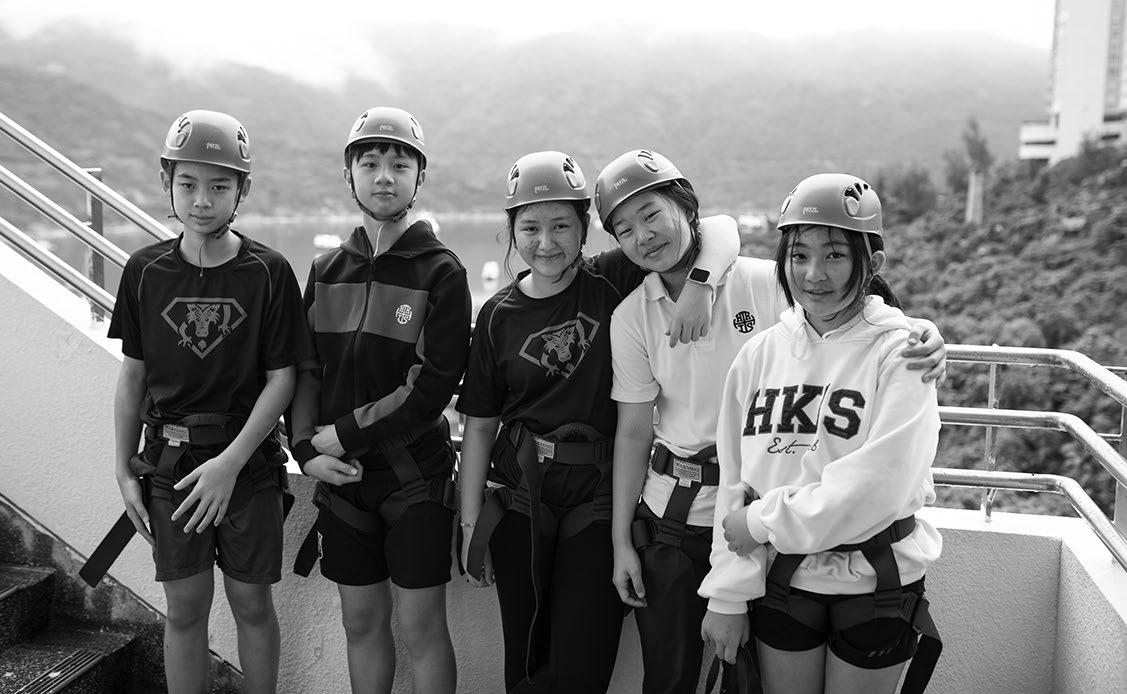
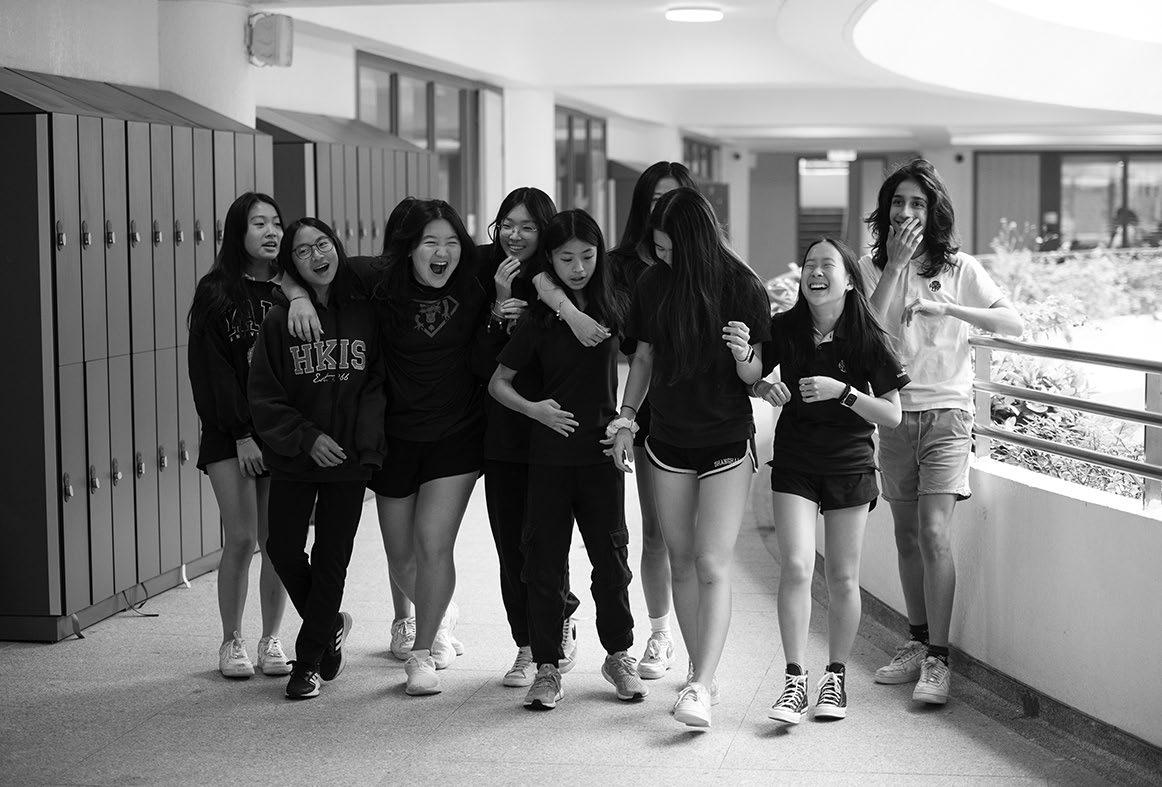
Middle School clubs will take place at 8:00 am on Tuesday and Thursday. Students will have a wide range of clubs to choose from: creative, physical, social, leadership, and service-oriented clubs. There are four club rotations through the year, with the goal being for students to engage in a wide variety of activities to help identify and cultivate their interests and passions. The third rotation of clubs will be sheltered time for students to work on Self-Motivated Learning (SML) projects.
Some of the clubs will be facilitated by student leaders, including students from High School, supported by faculty advisors. If a student wishes to start a club, they should initiate that process by contacting an Associate Principal. The Associate Principal will be able to provide the next steps and help students to determine if their club idea is viable.
In addition, the Middle School offers a wide variety of paid After School Activities. We encourage you to take advantage of all the opportunities offered. Middle School is a great time to explore your interests, try new activities, and meet new friends. Please visit the Middle School DragonNet page for complete details and description of each activity
Middle School Athletics provides opportunities for boys and girls to represent HKIS throughout the year. The program is split into four seasons and is provided free of charge for both (U12) and (U14) athletes. The teams compete in local school sports leagues and tournaments offered through the International School Sports Federation Hong Kong (ISSFHK) and the Hong Kong School Sports Federation (HKSSF).
To learn more about specific sports teams, schedules, age eligibility and policies please visit the Middle School Athletics pages on the HKIS website.
The tryouts for the following sports are advertised on the individual team pages. Newsletters and daily announcements ensure students are well aware of the dates and requirements.
The tryouts for sports are advertised on the individual team pages. Our Schoology MS Athletics page updates and ensures students are well aware of the dates and requirements.
Middle School Athletics is one component of the MS co-curricular program. To further meet the needs of our Long Term Athlete Development model (LTAD), Middle School students can register for the paid “select team” programs through the Activities Office page on the HKIS website. These programs compete in club based sports leagues locally and regionally.
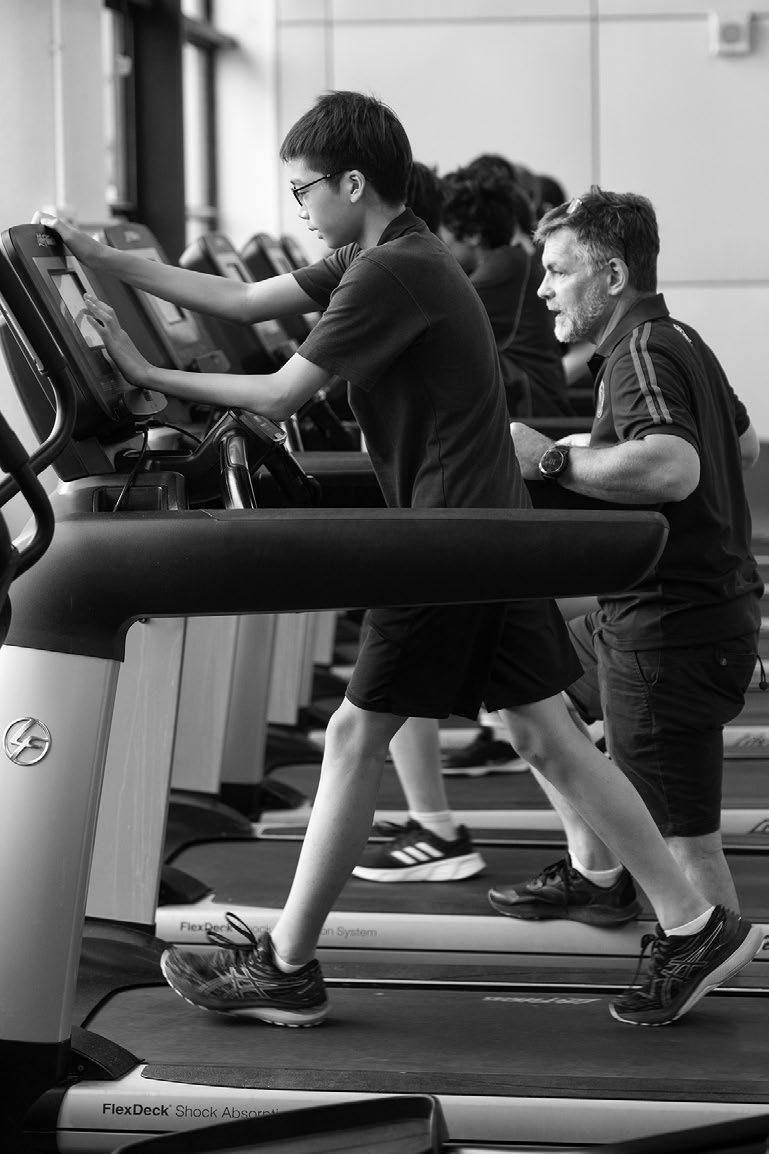
We believe that student leadership is essential to our community. Our leadership opportunities are designed to bring student voice, spirit, and advocacy into decision-making for the Middle School. We strive to have a diverse leadership team that represents the student body. We will provide ongoing leadership training and opportunities to help students develop the skills and knowledge they need to lead effectively. Leadership is a privilege that carries responsibility, and a student’s leadership position may come under review if a student does not exemplify the MS Norms.
A team that advocates on behalf of the MS student body serving as advisors and providing feedback to the Middle School Leadership Team.
One leader per PCG will be selected to encourage and support their PCG for at least one semester. These leaders build culture in their PCG and will be responsible for leading ‘choice’ PCG lessons.
House leaders are selected at the beginning of the year to plan and lead large group gatherings. These students are organized, dynamic communicators, and embody house spirit.
PCG (Pastoral Care Group) Leaders will:
MS Ambassadors represent HKIS to our greater community. These students live out the mission and vision of HKIS.
WORK WITH: Their PCG Teacher and the Grade Level Leader.
RESPONSIBLE FOR: PCG Choice Sessions and PCG Culture.
TRAINING: Mandatory Tuesday Club. High School mentoring. Leadership Retreat(s).
SELECTION PROCESS: PCG Leaders will be selected by their PCG at the beginning of the year and may revisit the process at the beginning of second semester.
House Leaders will:
WORK WITH: Student Life Leader.
RESPONSIBLE FOR: House Gatherings, Grade Level Gatherings, Spirit Gatherings and Spirit Building Events.
TRAINING: Mandatory Tu/Th Club. High School mentoring. Leadership Retreat(s).
SELECTION PROCESS: House Leaders will be chosen by their Grade Level House peers and teachers at the beginning of the school year.
Ambassadors and Junior Ambassadors will:
WORK WITH: Grade 8 Counselor (Ambassadors), Grade 7 Counselor (Junior Ambassadors) UP/HS Ambassadors.
RESPONSIBLE FOR: New Student Orientation and Transition, Tour guide to prospective students and families.
TRAINING: Mandatory Thursday Club, Leadership Training.
SELECTION PROCESS: Junior Ambassadors are selected in the Fall Semester of Grade 7 to represent our community. Being a Grade 7 Junior Ambassador does not guarantee being an Ambassador in Grade 8.

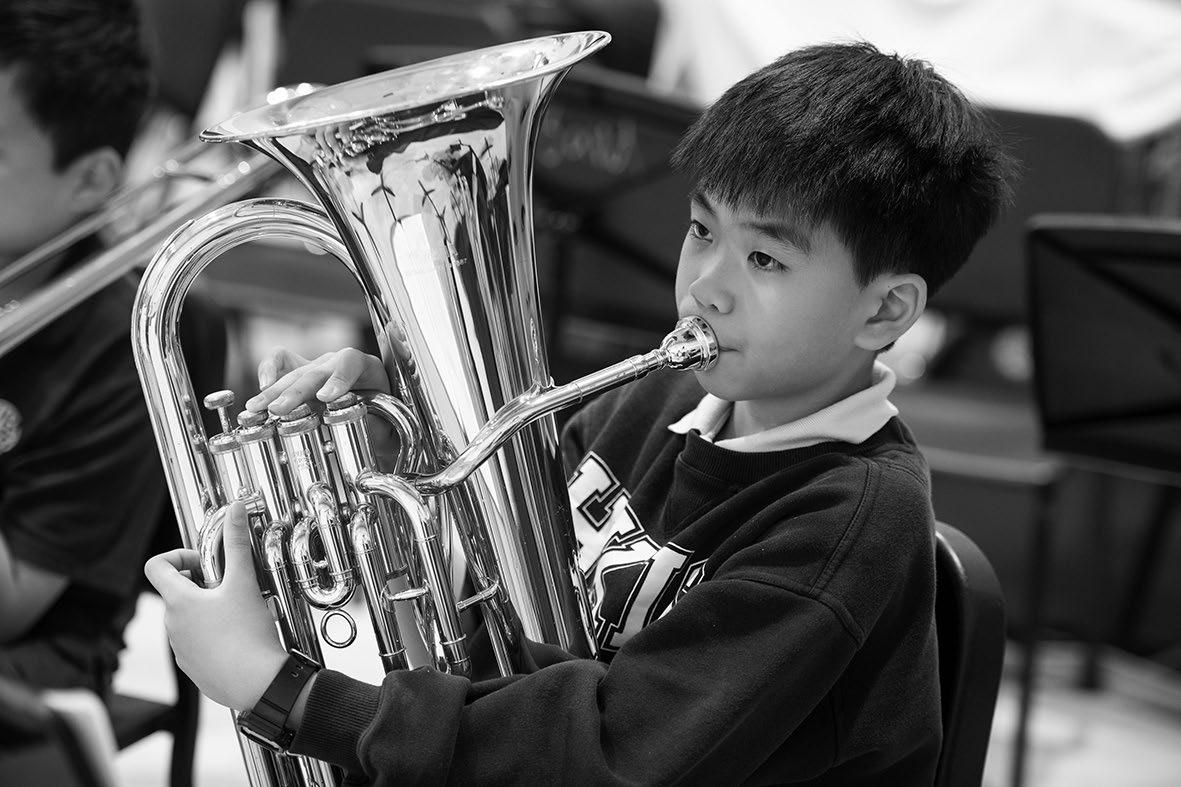
The Student Leadership Team (SLT) will:
WORK WITH: Middle School Leadership Team (MSLT).
RESPONSIBLE FOR: Advise and advocate for MS programs, policies and initiatives.
TRAINING: Meet routinely with the MSLT.
SELECTION PROCESS: The SLT team will be chosen by the MSLT from students who are actively serving as student leaders.
Be Reflective
Be reflective and open to growing from our successes and mistakes into the best version of ourselves.
Be Kind
Be kind and inclusive, recognizing the value of each member of our community.
Be Aware
Be aware of yourself and others to ensure a respectful and positive environment.
Be Responsible
Be responsible for the choices and actions we take; acting with integrity as trustees of the environment.
Be Collaborative
Be collaborative by collectively contributing towards the learning environment.
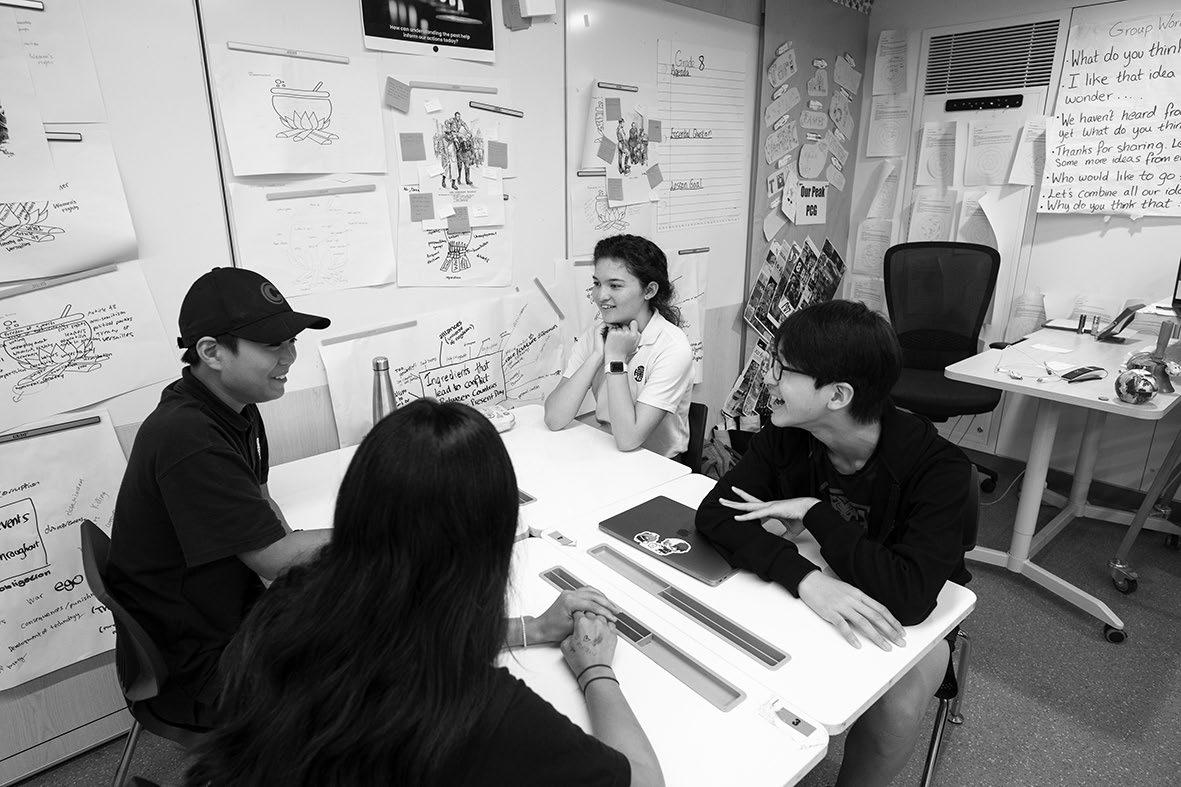
In the Middle School we believe that every child has the right to learn without fear in an atmosphere of mutual trust and respect. Every student is expected to be responsible for his/her own behavior, to exercise self-discipline and to refrain from behavior which interferes with other students’ right to learn or endangers the health or well-being of others. We encourage and expect positive, responsible and respectful behavior.
In our Middle School, we expect all students to live out our Common Agreements. These Common Agreements are shaped by all students in our Middle School, and are ratified in partnership with our House Leaders and Middle School administration. The Common Agreements were last ratified in the 20222023 school year.
• Students should use these times to eat, socialize and play.
• Students should consume food and drink at assigned locations.
• Students may go to designated locations that could include student services center, cafeteria, amphitheater, second floor annex, field, library, the Multipurpose Room (MPR), and the Peace Garden.
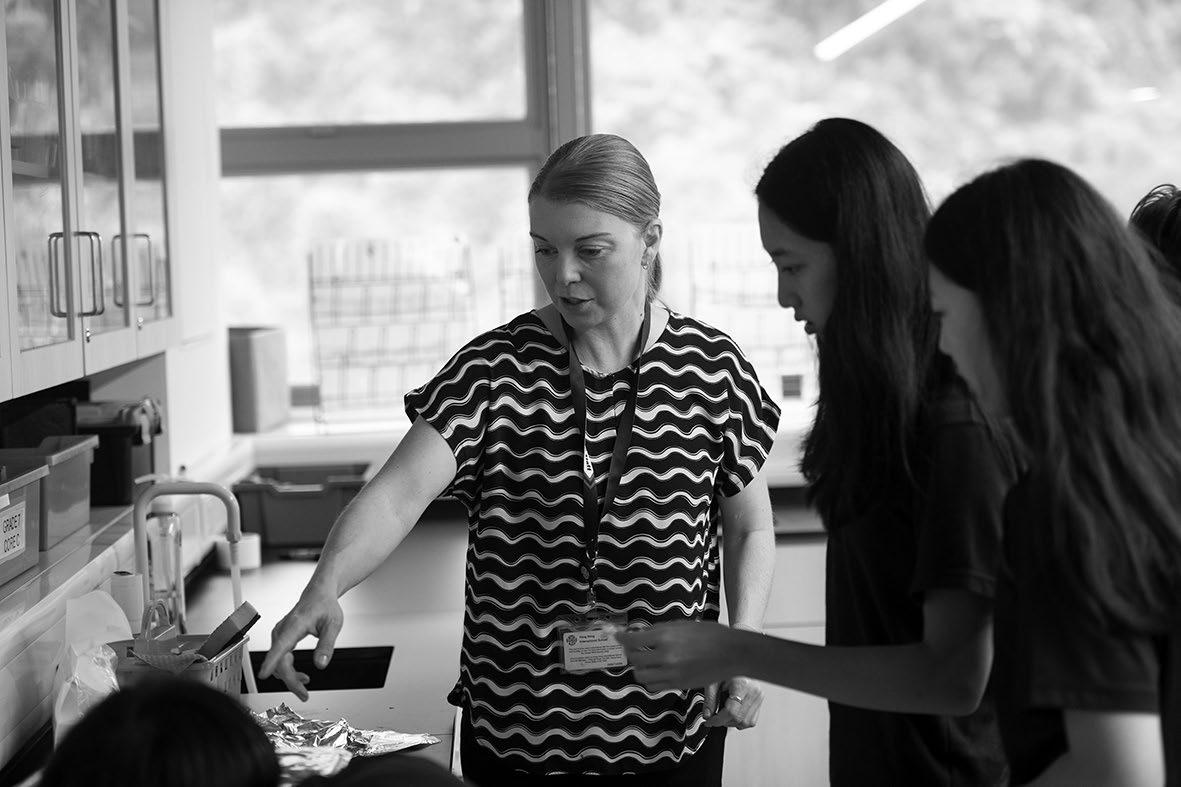
• Students must begin to make their way back to class when advised by the supervising teacher/staff member.
If a student chooses to bring their mobile phone to school, it must be kept in the student’s backpack or locker during the school day – arrival time to dismissal time unless a teacher allows the student to use it for class work. Students may come to the SSC if they need to make a phone call. If a student is unwell then the Nurse’s Office will contact a child’s parent or guardian. For other uses of mobile phones, please see the Educational Technology Responsible Use Agreement.
All students are assigned a locker at the beginning of the school year. The locker use policy is in line with our Common Agreements and, therefore, our lockers are lock free. Separate music and PE lockers are available for student use during the day.
The Middle School official dress code includes a HKIS uniform top in navy blue or white. It is the responsibility of students to ensure they are dressed according to the policy below. The dress code reflects the mission and vision of the school and unifies our student community as representatives of HKIS. All uniform tops are available for purchase from the Dragon Shop located at the High School Campus in Tai Tam.
DRAGON SHOP: HKIS High School, Level 2 (near cafeteria) / Monday – Friday (9 a.m. – 2 p.m.)
Tel: 3149 7186 / dragonshop@hkis.edu.hk
COLOR HKIS solid navy blue or white
STYLE Uniform HKIS short sleeve polo shirt (Special Edition PFO Chinese New Year top)
NOT ALLOWED: Tears, holes, ragged edges or alterations
PLEASE NOTE: MS encourages wearing House t-shirts on Fridays, Dragon Days, and at House Events. House t-shirts are student designed and provided to students in the fall. House shirts should not be written on or signed using permanent marker.
STYLE
Shirts and pants must have constant overlap with normal posture and movement; midriffs and buttocks should not be visible. This includes rips in clothing. Underclothes such as boxers, underwear, (not including socks) and bras should not be visible.
NOT ALLOWED: Tears, holes, ragged edges, opaque, cut-off shorts or pants.
STYLE Uniform HKIS sweatshirt or fleece jacket (Official HKIS sports/club sweaters or jackets and Special Edition PFO Chinese New Year top – any year)
NOT ALLOWED: Tears, holes or ragged edges
PLEASE NOTE: During extreme weather – any type of personal warm weather outer jacket is permitted over HKIS sweatshirt. In all instances the polo uniform top must be worn underneath.
STYLE Closed toe with non-slip sole
NOT ALLOWED: Clogs, shoes with wheels, or flip flops
PE short sleeved shirt, PE shorts
PE KIT
PE sweatshirt, PE sweatpants, PE leggings
PLEASE NOTE: Must be purchased in Dragon Shop
REQUIRED: Athletic sports shoes
SWIM
One-piece swimsuit, towel, goggles, flip flops/crocs/beach shoes
Students should dress in clothing appropriate for a middle school environment. Students should not wear clothing promoting inappropriate ideas in the school setting such as, but not limited to, hate speech, slurs, extremism, drugs, alcohol, smoking, vaping, and sexual references. Shirts should cover the back and shoulders. Shirts and pants must have constant overlap with normal posture and movement; midriffs and buttocks should not be visible. This includes rips in clothing. Underclothes such as boxers, underwear (not including socks), and bras should not be visible. Unless otherwise stated, closed-toe shoes with non-slip soles must be worn.
Our Middle School is a place where it is expected that individuals will respect themselves, classmates, teachers, the property of others and school property. Students not demonstrating this respect will be held accountable for their actions in accordance with our discipline philosophy. In addition, families will be held responsible for payment for total restoration or replacement of all damaged property/materials.
Everyone has the right to feel safe while attending school and/or school events. It is the practice and policy of HKIS that no one shall possess or use a weapon, or a look-a-like, in any school facility/grounds or during any school sponsored event. Possession means having a weapon on one’s person, or in the area subject to one’s control, on school grounds or at a school trip or activity.
Weapons include, but are not limited to, all types of knives, firearms, pellet guns, bows, clubs, tear/ pepper gas, or any other device or instrument that, in the manner it is used or intended to be used, is calculated to or likely to produce death or bodily harm. In addition to the parents and guardians, the Hong Kong authorities may be called when students or visitors possess and/or use weapons in violation of this policy.
HKIS Middle School is a community that encourages self-discipline, respect for oneself and the rights of others, and taking responsibility for one’s actions and behaviors. It is the goal of the Middle School to nurture and educate students so that they make thoughtful decisions and reflect on the possible consequences of their actions. Our aim is to work with students and parents to support personal and social development.
The aim of the discipline policy is to facilitate a positive school climate where each student feels safe and secure and effective learning can take place. The discipline policy provides a framework of progressive discipline. Our discipline policy has been inspired by the work of Alfie Kohn and our goal is for students to reason through their actions, take ownership for what they have done, and then work towards restorative justice. Therefore, when students break rules, we take them through a process that involves them articulating how their actions violated our core values, and they then create a reflection and (possibly) a Values Learning Plan explaining how they will make amends and ensure that restorative justice happens. The student will complete the Values Learning Plan with the help and supervision of some or all of the following people: the Associate Principal or Principal, the counselor, the student’s PCG teacher.
Category 1: This category represents the vast majority of disciplinary incidents. These are the day-today reminders or warnings to students to be safe or to act respectfully. Teachers and/or administrators will address these incidents as appropriate.
Examples (not limited) of incidents
Inappropriate use of an electronic device
Usage of a mobile phone during school hours
Dress code violation
Tardiness
Classroom misbehavior
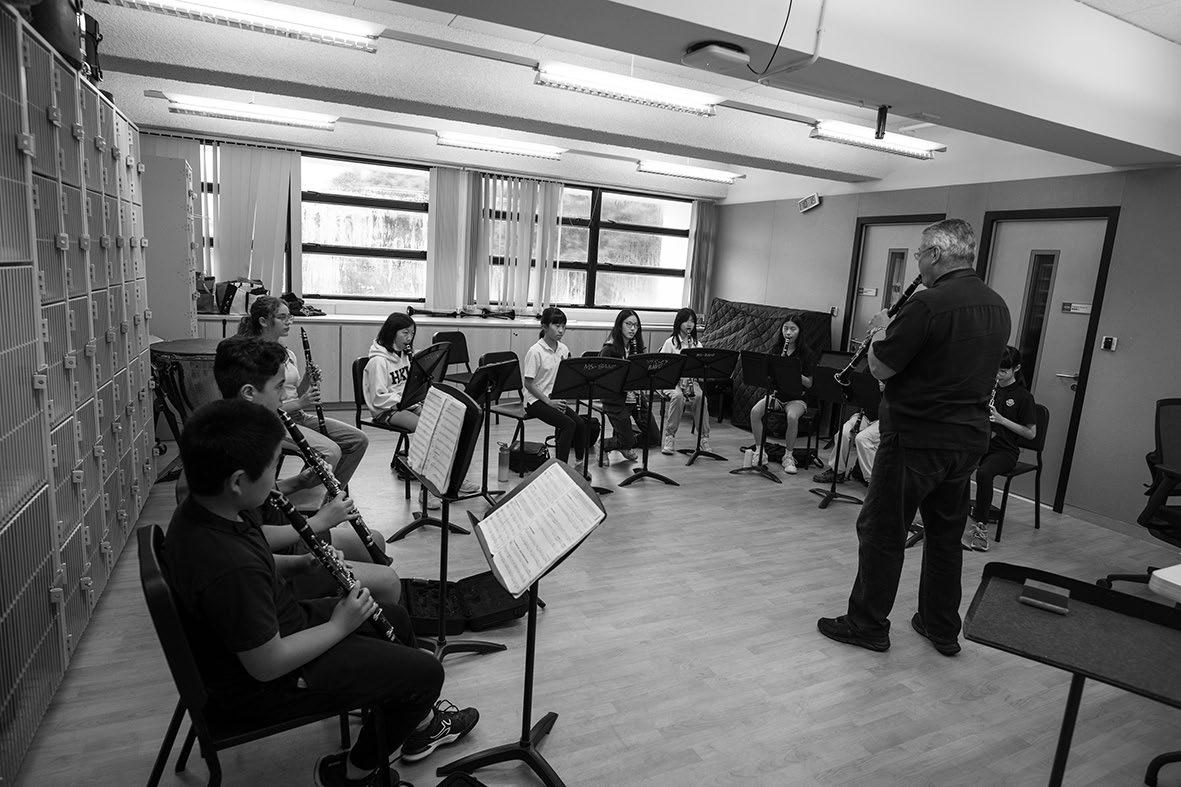
Inappropriate language
Inappropriate elevator use
Disrespect towards an individual
Use of an inappropriate website during school hours
Participation in an unsafe act (ex; throwing an object)
Possible Actions
Verbal reprimand
Student Behavior Reflection
Parent contact (email/phone)
Student asked to leave the classroom
Mobile phone sent to MS Office
Inclusion of PCG teacher
Inclusion of Counselor
Category 2: This category represents repeated Category 1 incidents or those affecting student learning.
Examples (not limited) of incidents
Repeated or extreme incidents of Category 1
Inappropriate rough housing
Skipping class or hiding during class time
Bullying and cyberbullying
Possible Actions
Referral to administrator
Inclusion of counselors
Student Behavior Reflection
Values Learning Plan completion
Parent contact
PowerSchool discipline log entry
Detention (break, lunch, after school until 5 p.m.)
In-school suspension
Out-of-school suspension
Suspension from school sport teams or after school clubs
Category 3: This category represents the most serious discipline cases. These cases are those that threaten the safety of self or others, violations of Honor and Integrity Codes and repeated Category 2 Incidents.
Repeated or extreme incidents of Category 2
Physical violence
Vandalism
Weapons
Technology infractions such as hacking, identity
theft, and using illegal websites
Theft
Smoking, vaping, using nicotine-delivering devices, using drugs or alcohol
Accessing another student’s locker without permission
Sexting: sending, receiving, or forwarding sexually explicit messages, photographs or images on a digital device
Referral to administrator
Inclusion of counselors
Values Learning Plan completion
Parent contact
Faculty communication
PowerSchool discipline log entry
Detention
In-school suspension
Out-of-school suspension
Outside counseling
Behavior probation
Conditional enrolment status
Removal from school sport teams or after school clubs
Removal from school leadership positions
Note:
Given repeated offenses or in an extreme case that threatens the physical safety of self or others, a student may be removed or asked to withdraw from the HKIS program
(Policy 3170, available on DragonNet.)
Hong Kong International School is committed to building and sustaining a culture of respect, care and safety that is free from any form of harassment, bullying or intimidation. All members of our community – students, parents, faculty, staff and visitors – have a right to feel safe and protected and share the responsibility to build and maintain an environment in which everyone feels respected.
Offensive, harassing, bullying or intimidating behaviors will not be tolerated or ignored and will be dealt with appropriately and expeditiously.
Harassment (and to “harass”) is defined under this policy as conduct which has the purpose or effect of creating an intimidating,hostile, or offensive environment, or that causes substantial emotional distress in such a person and serves no legitimate purpose.
Harassment can take different forms and covers a wide range of offensive behaviors that are not considered reasonable from a social or moral perspective. Those behaviors demean, humiliate or embarrass a person and include visual displays, suggestive or offensive remarks, jokes, slurs, or epithets, gestures, sexual demands, propositions, or unwanted physical contact. The nature of the contact can be of a sexual nature or based on sex, disability, family status, race, or other protected classification.
Across the school, both prevention and intervention strategies are in place for our student and adult community, and will be published to respond appropriately to any acts of harassment, bullying, or intimidation. Age appropriate prevention and intervention strategies will also be put in place to educate HKIS’s student and adult community and to encourage empathy and respect.

Any repeated behavior that offends, upsets, embarrasses, frightens, excludes or hurts another person is bullying and/ or harassment. HKIS recognizes that these behaviors can take many forms including:
• Language: Name-calling, spreading rumors, and/or directing insulting, teasing, threatening comments to another person
• Virtual: Harassment, or spreading rumors by email, instant messaging, blog or any other media form
• Religious: Putting down or ridiculing another’s religion, stopping another from expressing their beliefs
• Racial: Making hurtful comments or discriminating against someone based on their nationality, race or culture, color of their skin or language spoken
• Intellectual: Making hurtful comments based on someone’s intellectual or academic ability
• Sexual: Making hurtful comments or discriminating against someone based on their sexual orientation, gender identity, or gender expression
• Physical: Hitting, kicking, pushing, spitting or any other form of physical behavior which is deemed to be aggressive in nature.
• Personal Property (real or virtual): Taking, damaging or trespassing on another’s property, including entering another student’s email account, personal belongings, or school locker without permission
• Indirect: Intentionally excluding someone from a group, discussion or team
• Graphic/Vandalism: Defacing another’s property, projects or photographs
• Sexual: Making offensive gestures about another’s body, touching or maintaining unwelcome closeness to another person or discriminating against someone based on their sexual orientation, gender identity, or gender expression
We take the following steps to address and prevent bullying and harassment from taking place in the Middle School.
• Grade level Counselors provide talks to students throughout the year that discuss bullying & harassment behaviors, as well as teaching the students how to advocate for themselves and to resolve conflicts in a peaceful manner.
• PCG teachers introduce activities throughout the year to create classroom environments built on respect, inclusion and belonging, in which students can thrive and feel safe.
• The Middle School Leadership Team and Counselors provide information sessions for parents to raise awareness on the topics of bullying and harassment.
What can we all do to stop bullying and harassment at the Middle School?
If we are to maintain an ethos of care and respect for all members of our community, we must each take responsibility for maintaining an attitude of respect rather than tolerance for bullying and discrimination.
If you are guilty of bullying or harassment
• Stop now.
• Seek counseling from someone who can help you.
If you feel that you are being bullied or harassed
• If it feels safe to do so, tell the person to stop the bullying behavior.
• If the behavior persists or you do not feel safe, seek help from someone you trust e.g. a teacher, counselor, a parent or a member of the MS Leadership team.
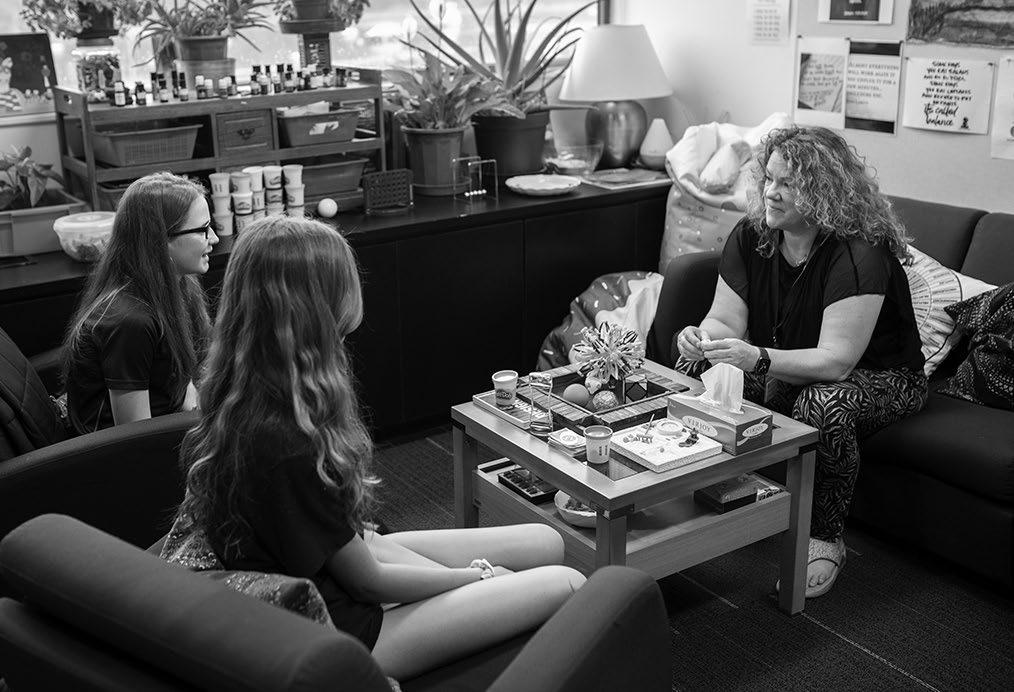
If you witness bullying or harassment in person or online: Be an Upstander and not a Bystander
• Don’t be silent or stand by and do nothing; if you do not feel safe intervening, then please ask a member of faculty for support.
• Don’t encourage bullying or discrimination by laughing at the situation or using words to support what’s taking place.
• Do offer support or challenge the situation, e.g. ask, “Do you need any help?” or “Why are you doing this?”
• Report bullying incidents to a member of the Middle School Leadership Team, a Counselor, a faculty member or to another trusted adult.
The Middle School Leadership team will investigate all reports of bullying and/or harassment. Any consequences for this behavior will align with the Discipline Philosophy.
The goal is always for growth, reflection and restoration. As a result, in collaboration with a member of the counseling team, a restorative justice and mediation session will be held with both parties. This approach seeks to repair harm by providing an opportunity for those harmed and those who take responsibility for the harm to communicate about and address their needs in the aftermath of a bullying/ harassing situation. It is a learning process, with an emphasis on taking accountability, building empathy, developing perspective taking skills, and learning how to better manage conflict and disagreements in the future.
If a student does not follow the agreements from the restorative justice and mediation session, further disciplinary action may be taken.
Our school’s Shared Philosophy of Education includes the expectation of high standards in ethical behavior as well as scholarship. Academic integrity is an integral component of this philosophy. HKIS Core Values remind us:
• integrity is essential to trust and credibility.
• society progresses when individuals strive for excellence and seek challenges.
• learning thrives in the presence of high expectations and mutually respectful relationships.
• together, parents, faculty, staff and students create the conditions for children’s success and a healthy lifestyle.
We expect that all members of our community will commit to and uphold ethical practices and values in everything we do. Students are responsible for asking for clarification if in doubt about what is acceptable practice, and teachers are responsible for being clear about what acceptable collaboration looks like.
Academic integrity includes, but is not limited to:
Cheating – Cheating is obtaining or attempting to obtain, or aiding another person to obtain, credit for work or any improvement of a score or grade of performance, by any dishonest or deceptive means. Cheating includes, but is not limited to: lying, copying from another’s test or piece of work and any unauthorized assistance given to another’s piece of work. Simply stated, cheating is anytime that you use another’s words, work, and/or ideas, and claim them as your own. Cheating may include:
• Giving or receiving questions or answers to work, including quizzes and tests
• Bringing and/or using unauthorized materials (e.g. calculators, cell phones/watches or crib notes) to complete an assignment or exam
• Using outside sources such as tutors, paid organizations or the Internet to complete assignments in part or in whole, write papers or produce projects for you and submitting as your own without acknowledging and/or citing their work.
Stealing – To take or acquire another’s property or ideas without explicit permission.
Lying – A false statement made with the conscious intent to mislead others.
Forgery – The intent to mislead others by falsifying a signature in an academic matter.
Plagiarism – “The act of appropriating the literary composition of another, or parts, or passages of his [or her] writing of ideas, or the language of the same, and passing them off as the product of one’s own mind.” (Black’s Law Dictionary, 5th Edition) Plagiarism includes borrowing the work or ideas of another person without giving them proper credit whether or not the source copied has been published. One gives proper credit by citing the original source in a way that is recognized as a legitimate citation. HKIS has adopted the standards set forth by the Modern Language Association (MLA).
Work cited in the Middle School adheres to the MLA 9th edition style rules, which now also includes guidelines on citing generative AI. To support students in the development of their citation skills, all MS students are provided an account with NoodleTools which is an online citation and research management tool. Research skills are taught with the support of NoodleTools throughout the Middle School.
Note: The use of Artificial Intelligence without attribution is a form of academic dishonesty. For HKIS’s position on the use of AI, see the The Use of Generative AI Tools at HKIS document that is available on DragonNet.
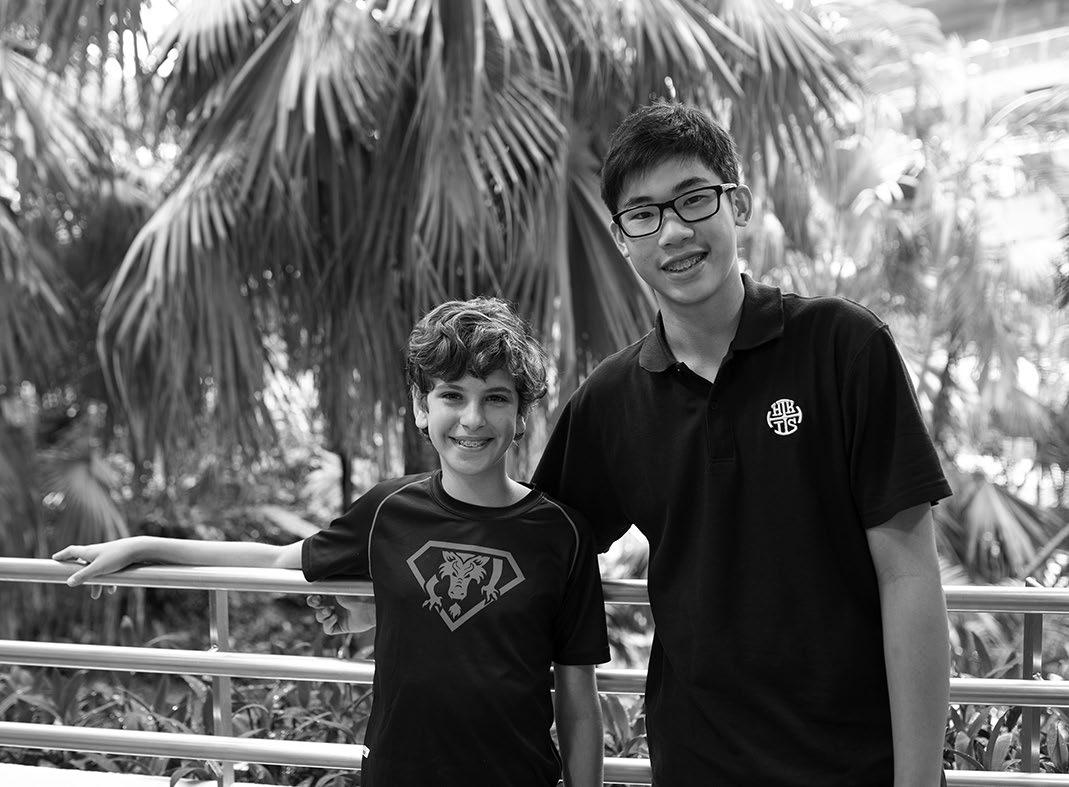
will
• commit to the Academic Integrity Policy
• complete all assigned learning with integrity
• seek clarification from teachers about questions related to the process of completing an assignment or assessment
• encourage their peers to pursue their academics with integrity
• express concerns regarding academic integrity to teachers, counselors or administration.
PARENTS/GUARDIANS will:
• read and understand the Academic Integrity Policy.
• support the school’s core values and Academic Integrity Policy.
• support the decision of administration regarding consequences if the policy is violated.
• ensure that when helping with assignments, the work remains the student’s own.
• encourage open communication with teachers and counselors on any academic issues.
TEACHERS will:
• publish the Academic Integrity Policy in the course syllabus.
• include guidelines for working on assignments and assessments.
• model proper citation of sources used in the classroom.
• explain the use of permissible study aids including tutors.
• check and monitor student work for academic integrity.
• report to an Associate Principal any violations of the policy and follow through on consequences.
DIVISIONAL LEADERSHIP will:
• enforce consequences for policy violations in a consistent and transparent manner.
• communicate decisions with teachers, students, and parents in a timely manner.
• record and maintain confidential records of policy violations.
• check applications for House Leaders, PCG Leaders, Student Digital Leadership Team, and Student Ambassadors for academic integrity violations.
Violations of academic integrity will be reported to the Associate Principal and entered into the student’s internal disciplinary record. In collaboration with the teacher, decisions made regarding consequences will be consistent with this policy and communicated to the student and parents. Violations of academic integrity are cumulative throughout the student’s academic school career. Our goal is that the students learn from their mistakes and understand the importance of academic integrity.
• First Incident: The teacher and/or Associate Principal will meet with the student and possibly their counselor to discuss the importance of academic integrity, and the incident will be recorded in the student’s internal disciplinary record as a first offense. The work (or parts of the work) will receive an “Insufficient Evidence” (IE) and may no longer be used as evidence for learning. The teacher may determine how the student can demonstrate their learning in an alternative way. Eligibility for other student leadership positions will be considered on a case-by-case basis. In all cases, parents will be notified of the incident.
• Second incident: May result in up to a two day in-school suspension and the assignment (or parts of the assignment) will receive an “Insufficient Evidence” (IE) and may no longer be used as evidence for learning. The teacher may determine how the student can demonstrate their learning in an alternative way. In addition, a parent conference will be held with the Associate Principal for Academics and possibly the Counselor, and the incident will be entered into the student’s internal disciplinary record.
• Third Incident: Will result in an out-of-school suspension. In addition, a conference will be held between the student, the parents, the Principal, and Associate Principal for Academics, regarding the student’s continuing enrollment at HKIS. The incident will be recorded in the student’s internal disciplinary record and if asked for or required on application materials, must be reported on the student’s school report sent to other schools, colleges, and universities.
Technology is ever evolving, and we want you to do amazing things with it. The Education Technology (EdTech) team at HKIS wants to help students, staff, and our community to keep up as well as to stay safe as it expands its use of technology to extend learning. Although not every learning opportunity involves technology, when it is needed, you need to be a flexible problem solver open to new technologies. It is okay not to know the answers to questions; questions are encouraged in our learning community. We all struggle with information overload, focus, and distraction.
Responsible use of technology involves a mixture of common sense, honesty, and respect for others.
As a global digital citizen and a member of the HKIS Community you are expected to follow these guidelines:
• I manage my personal data to maintain digital privacy and security and am aware of data collection technology used to track my navigation online.
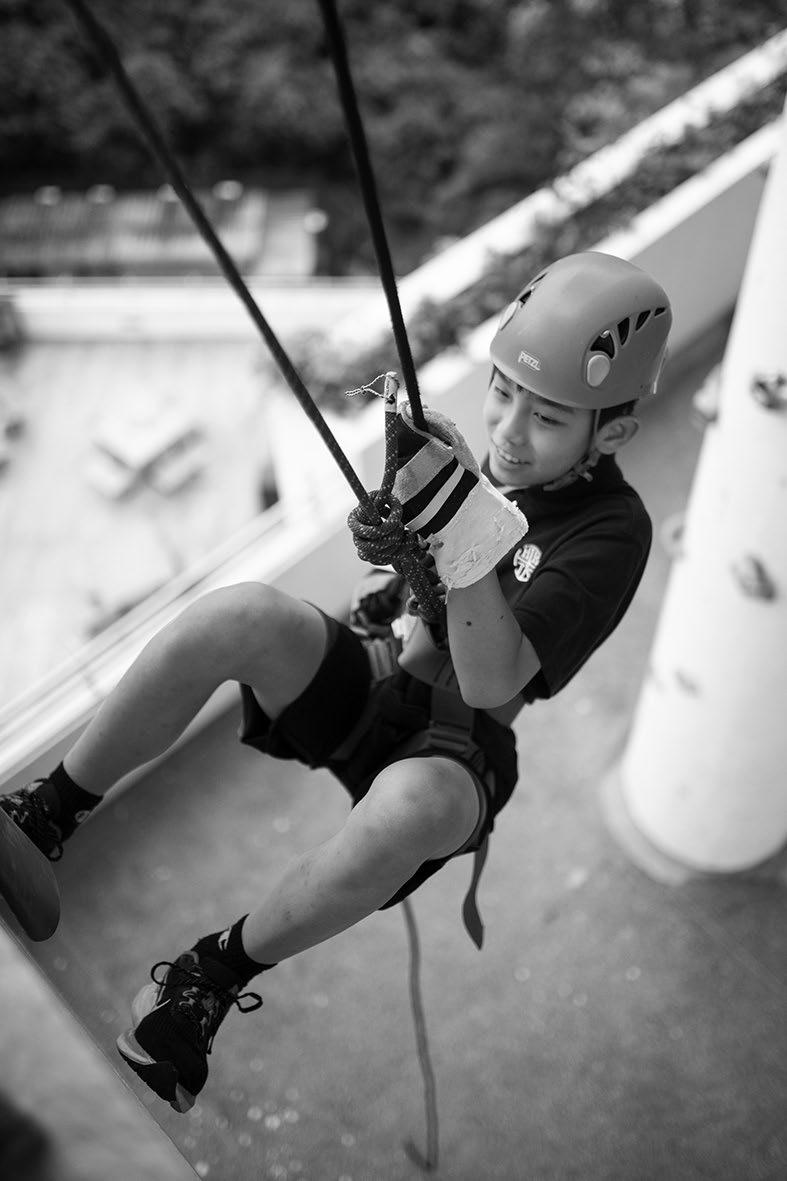
• I know software is not free and that my personal data is valuable and a form of payment.
• I am careful with my personal data as online companies monitor and track it. (Students need to seek/discuss with parents before registering for software or providing personal data.)
• I understand, and my parents are aware that my G Suite Education account is an integrated communication and
collaboration solution issued and managed by HKIS and that no personal information gets shared with third parties.
• I understand that by changing my password(s), I safeguard my personal information.
• I take care of my MacBook & digital devices. I know resources are limited and will let the EdTech Team know of any issues.
• I secure my MacBook & digital devices when doing other tasks.
• I cultivate and manage my digital identity and reputation and am aware of the permanence of my actions in the digital world.
• I know when I access the Internet, I am leaving permanent digital footprints of my actions.
• I know these digital footprints may always be available and accessible to anyone online.
• I use only first names online when referring to myself, classmates, or staff. I do not provide the personal data of other HKIS community members (i.e., full names, student numbers, addresses, telephone numbers).
• Students engage in positive, safe, legal and ethical behavior when using technology, including social interactions online or when using networked devices.
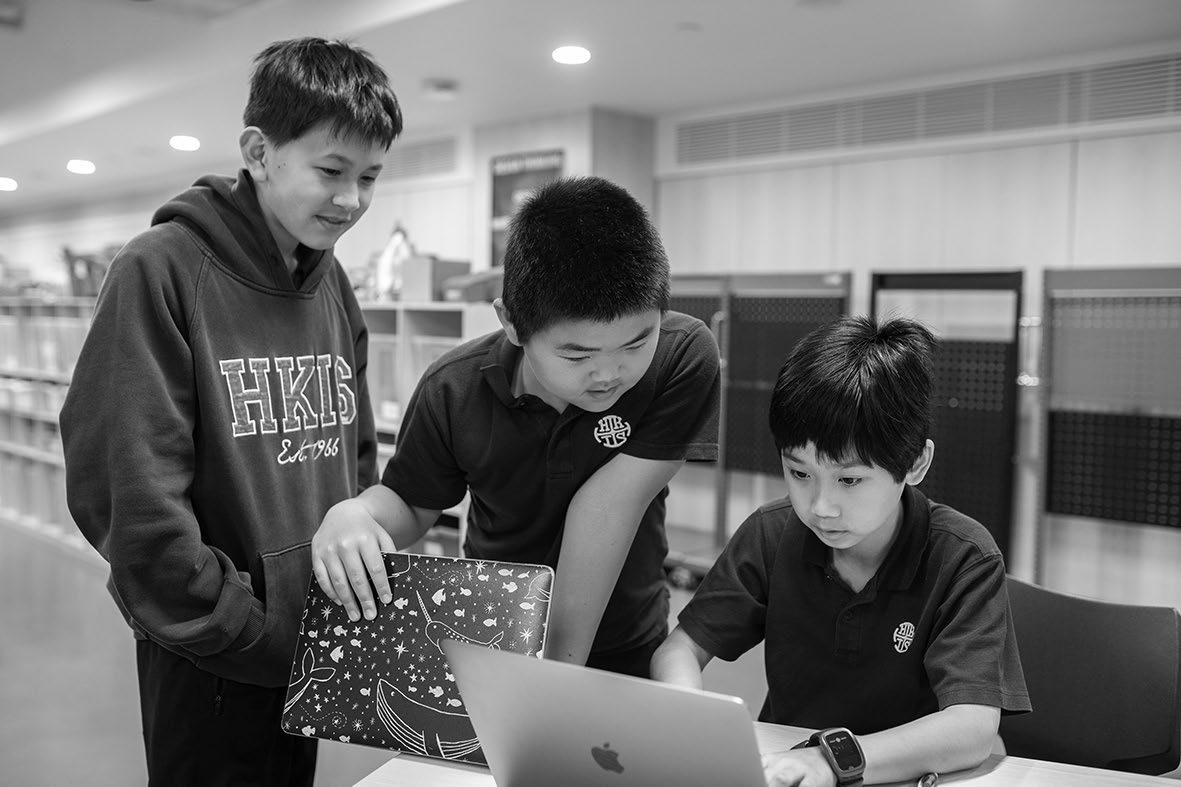
• I know that my digital behavior serves as a model for others.
• I am kind and only post positively about others. While I may not agree with individuals online, I do not use this as an excuse to be unkind to them.
• I post images and media of others only with their permission.
• I am responsible for the HKIS community’s online safety. I am aware HKIS may monitor its technologies and network activities.
• I keep a healthy and balanced relationship with technology.
• I demonstrate an understanding of and respect for the rights and obligations of using and sharing intellectual property.
• I know that I should only use and download legally purchased or licensed software and media.
• I know that if I use the work of others, I must give due credit by citing sources for information and images.
Students & Families: Before the beginning of each school year, please login to PowerSchool, click on “Forms”, then “Schoolwide Yearly Agreements” and complete the “Educational Technology Responsible Use Agreement” form to acknowledge that you have read and will adhere to this agreement.
HKIS Middle School values the social-emotional well-being of our community. We believe that making the time for personal interactions in a device-free environment is important for building community and relationships, strengthening interpersonal skills, and making friends.
It is a requirement for students at HKIS to use and maintain their own digital device. We believe digital devices can be transformative educational tools, and we promote responsible use (as outlined in our planner according to our Responsible Use Agreement). The purpose of these guidelines is to cultivate a relationship-centered community based on face-to-face interactions.
As a Middle School, we agree to the following guidelines:
1. Bring your laptop fully charged and operational to school every day.
2. When you arrive at school, please place all digital devices in lockers (or bags prior to going to a locker).
3. Mobile phones are to remain in your locker or stored in a bag throughout the school day unless a teacher provides permission for its use.
4. Transport your laptop in a safe and secure manner with the lid closed.
5. Devices such as laptops and tablets may only be used for educational purposes in classrooms or designated areas of the library.
6. All common areas of the school are expected to be device-free unless you have specific teacher permission.
7. You may only use your laptop or tablet in a designated zone in the library for educational purposes. There will be limited seating in the designated zone. If the space is full and you have an urgent need, you can go to the MS office or speak with a teacher.
8. Change, update or remove school-provided software from your laptop only when notified to do by HKIS.
After dismissal, you may use your devices in accordance with our HKIS Educational Technology Responsible Use Agreement.
Please refer to HKIS’s Social Media Policy (Policy 3180, available on DragonNet) for rules and guidelines on using social media responsibly.
Guidelines for Students (from HKIS’s Social Media Policy 3180)
Students should remember that the Internet is permanent and public. They should take care with their activities and identities on social media, including by following the guidelines below:
• All school-related digital communication, including public and private group chats, must not include conversations that would be unacceptable in the classroom.
• Avoid posting offensive or inappropriate language, pictures, videos or comments about classmates, teachers, or other members of the school community.
• Ensure that content posted on social media websites does not depict or involve inappropriate or illegal activities.
• Don’t post anything you would not say in a public forum when representing HKIS.
• Be selective of individuals befriended on social media. There are many false identities out the
• Check your privacy settings. We recommend the strongest security settings be used on all platforms where only approved followers can view your content.
• Never post your home address, phone numbers, birth date, or other personal
• information on social media. Do not include your location on social media posts.
• Understand that anything you post online is available to anyone in the world and out of your control thereafter. The information you post is no longer your property but that of the social media website.
• Students are encouraged to comment or post appropriately about the school. Criticism or suggestions for improvement should be done with positive intent. Any offensive or inappropriate comments will be resolved by the use of the school’s behavior policy.
• Anonymous posts are discouraged in relation to school activity.
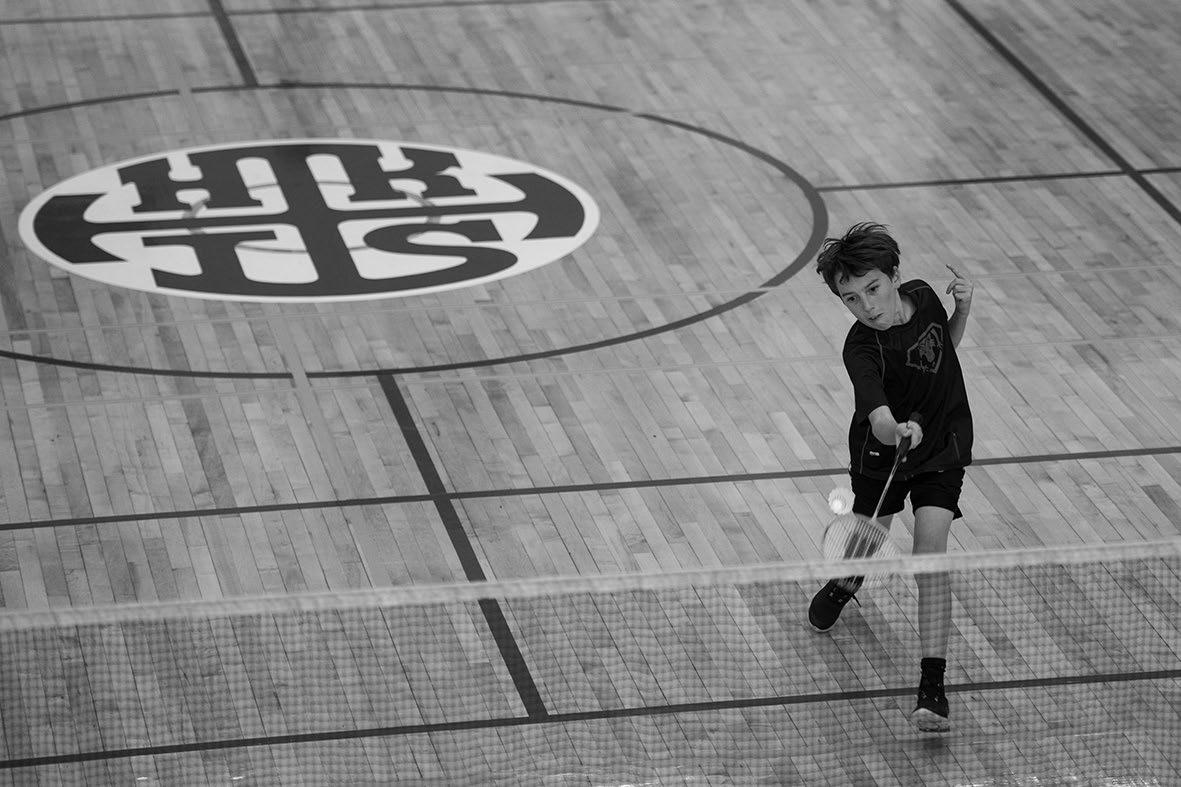
• If a conversation turns and becomes offensive or unacceptable, students should block, report and/ or delete other users or their comments/posts. If possible, it is useful to take a screenshot of the conversation for your records before taking these actions.
• If you feel that you or someone else is subject to abuse by any community member through use of a social networking site, then this abuse should be reported to the most appropriate school faculty or administrator.
• If photos are taken during a field trip or overseas trip, they must not be shared until after students have returned to school or home. This is to avoid sharing information about a student’s location.
• Anyone taking photos must seek permission to use any photos or video recordings on social media. If anyone asks not to be filmed or photographed, his/her wishes must be respected. This applies to individuals and partner organizations (e.g.: during PEAK, sports, AMIS, ISTA).
Our Middle School Community thrives with the support of our Student Services team. Comprised of counselors, learning specialists, and our school nurse, they provide academic, emotional, and physical support to our students. Our counselors are equipped to help students navigate academic challenges, social issues, and mental health concerns, while our school nurse provides medical care. Our learning specialists support our students with their individual learning plans. The Student Services Team fosters a sense of belonging, inclusion, and community, ensuring our students feel supported in all aspects of their lives.
Ms. Faith Ro Counselor (Grade 6)
Mr. Kenny Clark Counselor (Grade 7)
Ms. Laura Cowan Counselor (Grade 8)
Ms. Meg Rowe Learning Strategies (Grade 6)
Ms. Suzi Wah Learning Strategies (Grade 7)
Mr. Nathan Keller Learning Strategies (Grade 8)
Ms. Camille Yam Nurse
SEL Vision
HKIS Middle School is a relationship-centered community focused on character development, while promoting a culture of respect and kindness, nurturing the individual, and fostering awareness of self, others, and the environment.
Social Emotional Learning is everywhere at HKIS MS! Whether you’re in a class, eating lunch, in PCG, playing sports, or on a break, you’re constantly having a chance to refine your social and emotional skills. We believe kids who develop strong social and emotional skills are happier because they can more fully appreciate the enjoyable parts of life while also developing resiliency to get through any of life’s challenges.
There are five main domains of SEL, called “competencies.” These competencies are derived from the work of The Collaborative for Academic, Social, and Emotional Learning(CASEL). CASEL has been a leader of the SEL movement since first introducing the term more than two decades ago.
• Self-Awareness – the ability to accurately recognize your own emotions and to accurately assess your strengths and limitations
• Self-Management – the ability to successfully regulate one’s emotions, thoughts, and behaviors in different situations; the ability to set and work toward goals
• Social Awareness – the ability to take the perspective of and empathize with others; the ability to understand social norms and recognize community supports
• Relationship Skills – the ability to establish and maintain healthy and rewarding relationships with diverse individuals and group; the ability to communicate clearly, listen well, and cooperate with others
• Responsible Decision Making – the ability to make constructive choices about personal behavior and social interactions
(Adapted from Policy 3150, available on DragonNet.)
HKIS believes that daily school attendance is critical if students are to receive the maximum benefits from the opportunities offered at the school for learning and growth. Absences, for any reason, are disruptive to the learning process and to the achievement of the student. Being on time for school and for class is also important for the individual student and the class as a whole. The absent or tardy student misses valuable interactive classroom experiences and immediate feedback from teachers and peers.

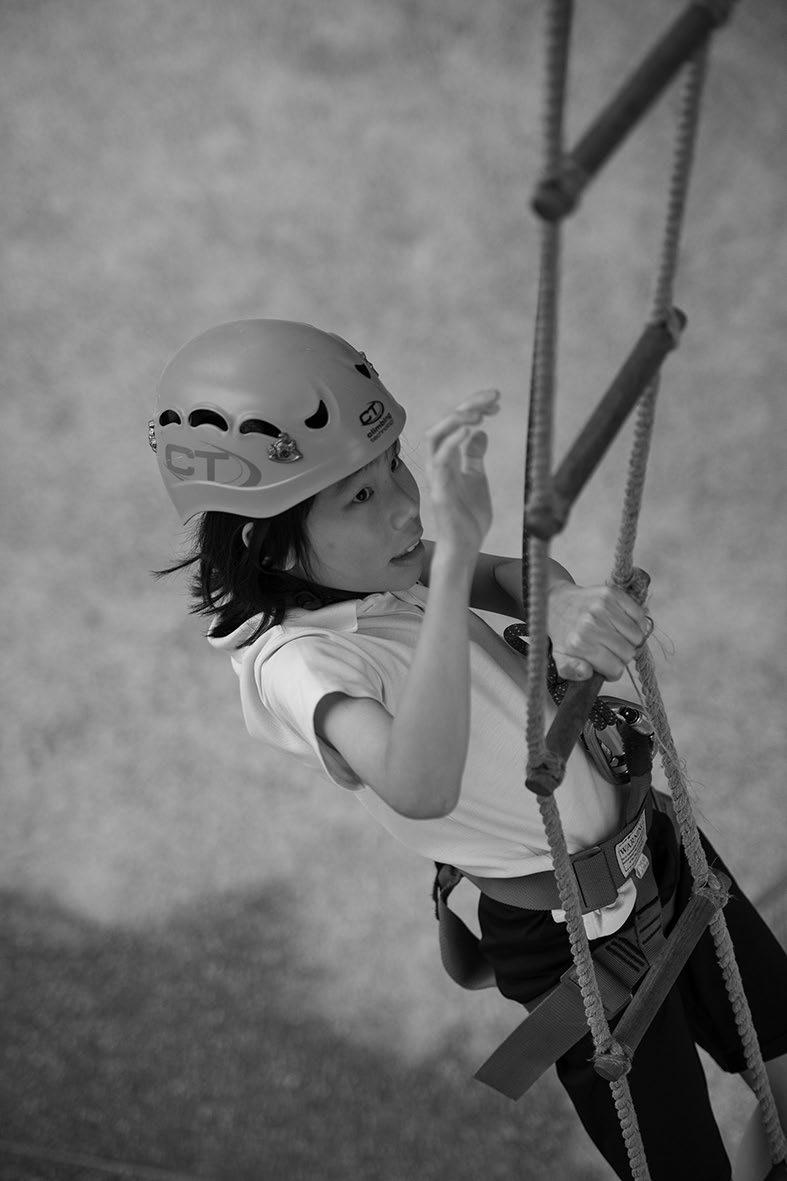
The school is committed to working with parents to ensure consistent attendance for all students. Parents should not permit students to miss school for reasons other than illness, family emergencies, or significant personal reasons, such as religious observances or external exams. Parents are also asked to respect the school’s calendar especially at parent conference times and not to take their child out of school for travel or vacations during regularly scheduled school days. If a student is absent for reasons other than illness, family emergencies or significant personal reasons, parents should note that the school does not require teachers to provide make-up work. Absences or non-attendance at concerts or other performances may also affect a student’s grade.
Any absence, tardy or early dismissal must be accounted for. Parents should notify the school early in the school day if their child will be absent due to illness, or as early as possible in advance for other absences. Parents may email msattendance@hkis.edu.hk to notify the school of absences. Each principal will annually publish the official start and end of the school day, and will also outline the specific procedures for late arrival at school, early dismissal and divisional policies related to making up any work missed.
All students are expected to be on school grounds from the official start to the end of the school day. Permission for students to leave their school campus during school hours can only be granted by the Principal of the school or his/her designee.
Students are expected to be on time for school and for class. This expectation is essential both for students’ individual learning and for the class as a whole. Students must be in attendance for 85% of the school days within each semester. If attendance falls below 85%, parents will be contacted, and teachers may give the following semester report card grade: NA – Student was not present in class long enough to be graded.
A pattern of late or missed assessments will lead to administrative contact with parents and a conference with one of the Associate Principals and/or Counselors.
If a student needs to have time away from school to participate in a family engagement or other extracurricular activities the following process must be followed.
• Set up a meeting with one of the Associate Principals via the Student Support Secretary to plan for this absence and gain approval for this absence.
• If permission is granted, a planned absence form must be submitted and the student must communicate with the teacher prior to the absence.
• The student must make up relevant assignments upon return to school.
Parents should email msattendance@hkis.edu.hk to notify the school of absences as soon as possible. Students must follow up with their teachers upon return to school to complete any relevant assignments.
Parents must email msattendance@hkis.edu.hk to notify the school of late arrival at school/leaving early in advance. Students arriving late should check in at the Student Services Center and obtain a pass to admit to class. Students leaving early should report to the Student Services Center at their dismissal time to check out and obtain a gate pass to give to the security guards.
Students who wish to bring a student visitor to school need to get permission from their teachers and the Middle School Leadership Team at least one day before the visitor’s arrival at school. A form is available for this purpose from the Students Services Center or from our website. The school reserves the right to limit the number of student visitors, and visits will not occur during the first two weeks of school and last two weeks of the school year.
An enrollment requirement of HKIS is for all students to have at least one parent in full-time residence in Hong Kong.
If during the school year both parents plan to leave Hong Kong for one or more days while their child remains in residence, one or more temporary guardians must be appointed to make any necessary decisions regarding the child’s welfare. A “Notification of Both Parents’ Absence from Hong Kong” form must be completed through PowerSchool each time both parents plan to be absent from Hong Kong, and submitted to the student’s divisional administration office as far in advance as possible. The “Appointment of Temporary Guardians” form must also be completed through PowerSchool as soon as possible prior to the FIRST planned departure of both parents from Hong Kong. The completion of one of these forms each school year is sufficient, as long as the appointed temporary guardian information has not changed. Parents who do not arrange for and inform the school of the child’s supervision and guardianship may jeopardize the child’s continued enrollment at HKIS.
This administrative policy applies to all separated or divorced parents of HKIS students. HKIS understands that special custody, access and permission arrangements may be required for the children of divorced or legally separated parents. HKIS attempts to accommodate the desires of both parents and court orders, within reason. HKIS does follow legal guardianship directions from Hong Kong courts in accordance with the school’s policies. Note that court orders relating to child care and custody obtained from foreign jurisdictions are generally not recognized in Hong Kong unless the parties specifically seek a “mirror” order in Hong Kong.
HKIS always defaults to what the school believes is best for the student. Nevertheless, in some cases when parents cannot reach agreement and/or the school cannot accommodate the parents’ requirements (within reason), HKIS’s final response may be to withdraw the student’s enrollment.
In order to document the terms by which the parents jointly request HKIS to provide special custody, access and permission arrangements, a “Child Care Arrangements in the Event of Marital Separation/ Divorce” form (the “Form”) must be completed for each student and signed by both parents The form is accessible through PowerSchool, and completion of this Form is a requirement to ensure retention of the child’s enrollment at HKIS.
To the extent permitted by law, HKIS will abide solely by the arrangements set out in the Form, notwithstanding any court orders. In the event of any conflicts or disputes, parents are advised to seek clarification from the court. If the parents wish to vary the arrangements set out in the Form, they must inform HKIS in writing, and both parents must sign such notice.
The information provided in the Form will be used for HKIS’s administration purposes and for determining relevant arrangements for the student. As such, the information provided will be made available to those HKIS staff responsible for the care of the student, which may include (but is not limited to) the student’s teachers, the relevant teaching assistants, school counselors and/ or the school nurse. If
and when appropriate, HKIS may release certain relevant information to external providers operating services and activities in which the student participates as an HKIS student (e.g., providing information to extracurricular service providers regarding who may or may not collect the student following such activities).
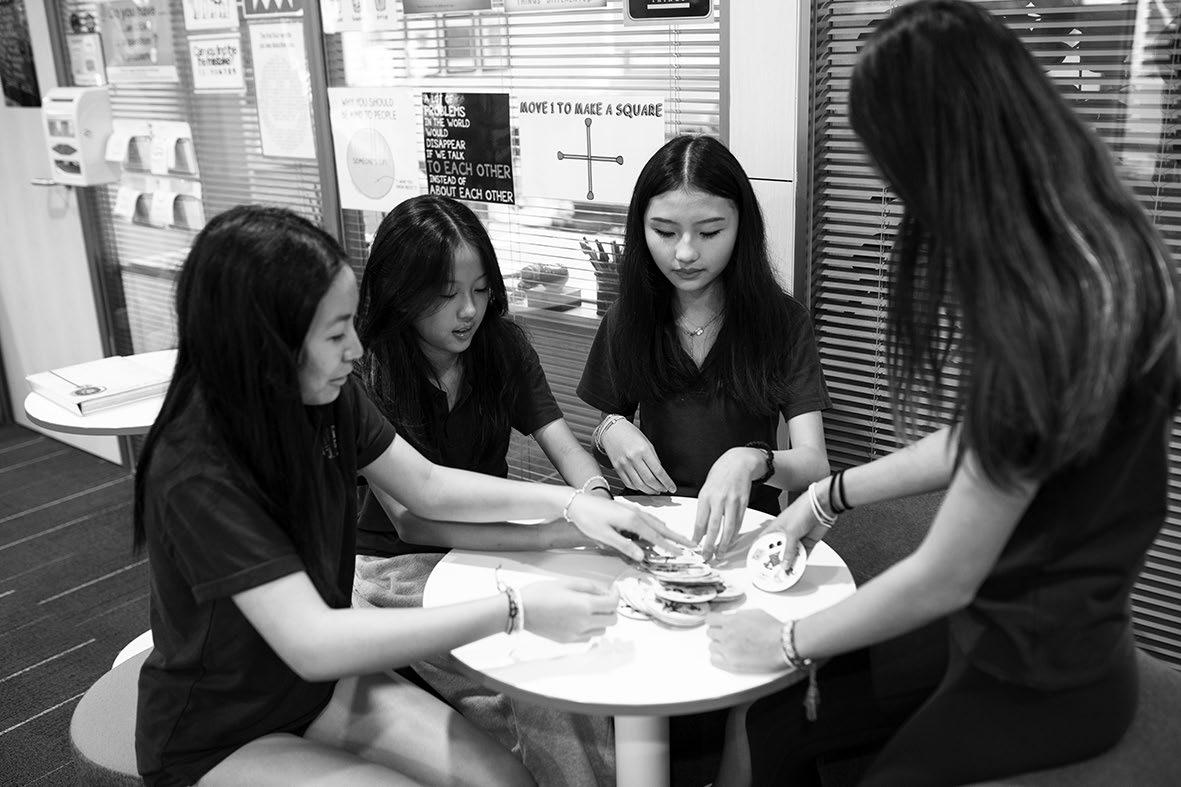
The Middle School Health Office is located on the 4th floor in room 402 and our nurse, Camille Yam, is available from 7:15 am to 3:15 pm
Offer first aid and assistance to children who become ill at school
Authorize and arrange for children to be sent home in cases of illness or injury
Dispense medications needed during the school day
Maintain health records and assist in the overall health program
Monitor and communicate spread of communicable diseases
Monitor and communicate AQHI (pollution) levels
Supervise re-admission of children to school after major illnesses, communicable disease or injury
Random hair test to promote drug awareness
All new students to HKIS have to submit the following forms on PowerSchool: Health History Form – To be completed by the parent
“Family” information under the Demographics Updates in PowerSchool. Please ensure this is kept current at the beginning of every school year or when any changes occur.
Physical Examination Form – To be completed by a medical doctor (HKIS will accept a physical completed within the last 6 months). *This form must be downloaded from PowerSchool, printed, and completed by your physician. Upload a scan or photo of the signed form to PowerSchool.
All returning students to HKIS have to submit the following forms on PowerSchool:
Physical Examination Form – Updated forms will be required for returning students who are starting Grade 3, Grade 6 and Grade 9. The school nurse will email parents to remind them.
“Family” information under the Demographics Updates in PowerSchool. Please ensure this is kept current at the beginning of every school year or when any changes occur.
Emergency Contact Information
The Family information in the Demographics Updates in PowerSchool must be completed online for each child at the beginning of the school year. The information on this form is very important. It has emergency contact numbers, information about allergies/medical conditions, consent to medication and authorizations for hospital care.
Please remember to update information on this form during the school year. This form will consist of detailed information that the teachers and Health Office refer to during the school year and use for offcampus trips such as PEAK.
Our school nurses may not dispense any medication without parental consent. Students are not allowed to carry any medication with them during school hours except for EpiPens, diabetic kits and asthma inhalers. If your doctor prescribes a medication that must be taken during school hours, you must complete and submit a Medication Administration Consent Form in PowerSchool.
Please visit: www.hkis.edu.hk/dragonnet/health/ for further details.
The school prohibits the use of nuts and shellfish in the Middle School Cafeteria and Cafe. Nut-based foods are not banned in student lunches and special events. The Culinary Arts program provides alternatives for allergenic students and preventing cross-contamination is a high priority. Despite these precautions, no management of food allergens is effective 100% of the time. Please alert the nurse to any allergenic needs.
Students who use EpiPens: Parents must supply two EpiPens to the school in case of emergencies.
If your child should become ill during school hours, you will be contacted to make arrangements for him or her to be taken home as soon as possible. A doctor’s note is required following an absence of four or more consecutive school days. The doctor’s note should state that the child may return to class and if there are any physical restrictions. If your child has a contagious disease/illness, please contact the school nurses who will advise you on the procedures about returning to school.
The following are conditions under which a child should stay home or would be sent home from school:
Fever: Students with a temperature of 37.5C or 99.5F or greater, should not return to school until they have been fever free for 48 hours without the benefit of fever reducing medications such as Panadol and Ibuprofen.
Vomiting and Diarrhea: Students with vomiting and/or diarrhea should not return to school until 24 hours after the last episode of vomiting or diarrhea. The student needs to be asymptomatic for 24 hours without the use of medication.
Acute Conjunctivitis: Students exhibiting the symptoms of commonly known “pink eye” are very contagious. Students should not return to school until he/she has been seen by a doctor and the treatment of prescribed eye drops has been used for 24 hours.
Hand, Foot and Mouth disease: Students should not return to school until all vesicles have dried up or as advised by the doctor.
Scarlet Fever: Students should not return to school until 24 hours after treatment with appropriate antibiotics has been started, and until 48 hours after the fever has come down as according to the fever policy.
Chickenpox: Students should not return to school for 5 days or until all vesicles have dried up, and until 48 hours after the fever has come down as according to the fever policy.
Head Lice: Lice are highly communicable and difficult to prevent, but if every parent takes the responsibility to check the entire family periodically, these parasites can be prevented, detected early and controlled. Infestations are most common among 3-11 year olds. Head lice are not known to cause disease, and transmission primarily occurs through direct head-to-head contact and infrequently through indirect contact of shared personal belongings.
Students will be sent home if head lice are detected during the school day. If your child has head lice, all household members should be checked and treated, if necessary. Students should not return to school until all live lice have been removed and students must be checked by the school nurse before going back into class following the first treatment. Notify school nurses whenever a child has head lice or nits so treatment options can be discussed.
The Hong Kong Environmental Protection Department uses the Air Quality Health Index (AQHI) to advise the public about day-to-day risks associated with air pollution. The nurse in each division checks the AQHI regularly throughout the day and advises when the levels reach 6, 8 or 10+ so appropriate measures can be taken.
HKIS uses the following benchmarks:
AQHI levels 1-5 at Eastern Station: No restriction on student activities.
AQHI levels 6-7 at Eastern Station: Students with asthma and other respiratory or cardiac conditions will be advised to limit their outdoor physical activities. Students on the AQHI list will be kept indoors (LP and UP). Outdoor PE classes will be modified for students with respiratory or cardiac conditions (MS and HS).
AQHI levels 8-10 at Eastern Station: There will be indoor recess and PE for Lower and Upper Primary students. Outdoor activities will be reduced in duration and intensity. Cross-country running activities will be cancelled.
AQHI levels 10+ at Eastern Station: All outside activities are canceled. Indoor PE activities will be modified for all students. All outside after school activities will be canceled.
The school will check AQHI levels at 6 a.m and 11 a.m. each day and monitor AQHI continually whenever it exceeds a 5 at Eastern Station. Middle and High School athletic practices will be guided by the 2 p.m. reading at Eastern Station.
Travel for off-campus activities will be determined by identifying the closest monitoring station to the activity and applying the standards above. When registering for co-curricular physical activities, such as MS and HS athletics, parents can indicate their preferences for their child’s level of participation at AQHI 8 and above.
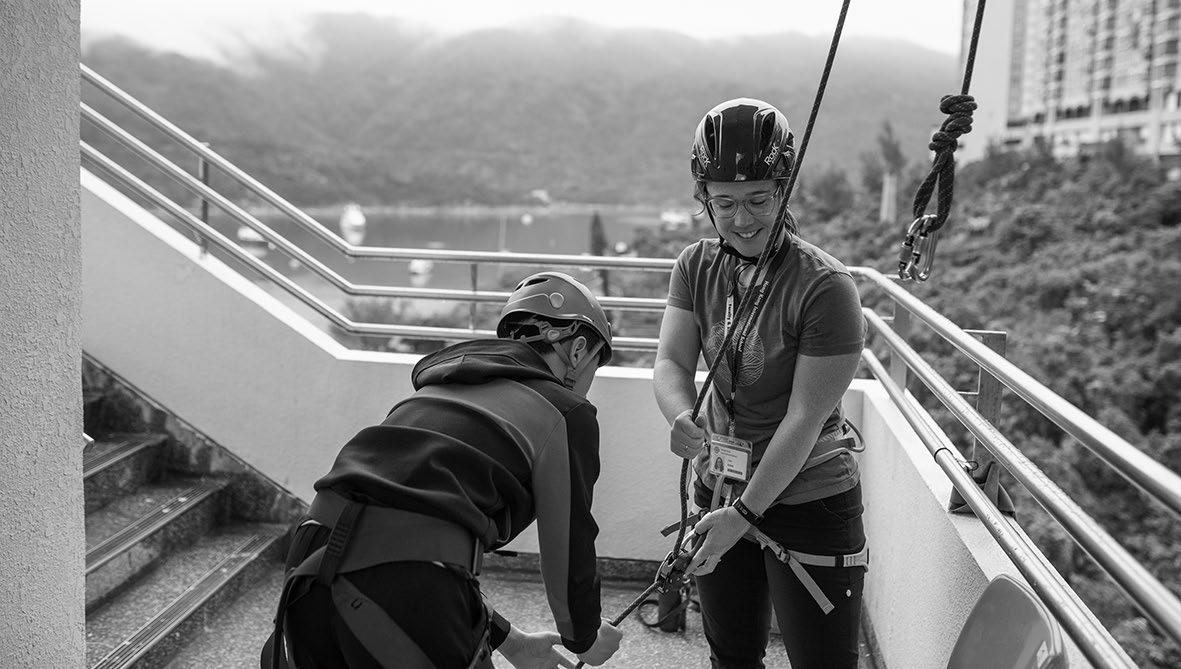
The following safety rules for all bus riders have been established to ensure a safe and pleasurable bus ride for all. Students must:
• stay seated and remain seated until the bus comes to a complete stop
• demonstrate courtesy and respect to the bus driver, bus monitor and other bus riders
• use a quiet voice
• not throw objects of any kind on the bus or out of the windows
• upon arrival, wait for the bus to leave before crossing the street to allow a full view of traffic
• use mobile devices in a manner that follows HKIS Responsible Use Agreement
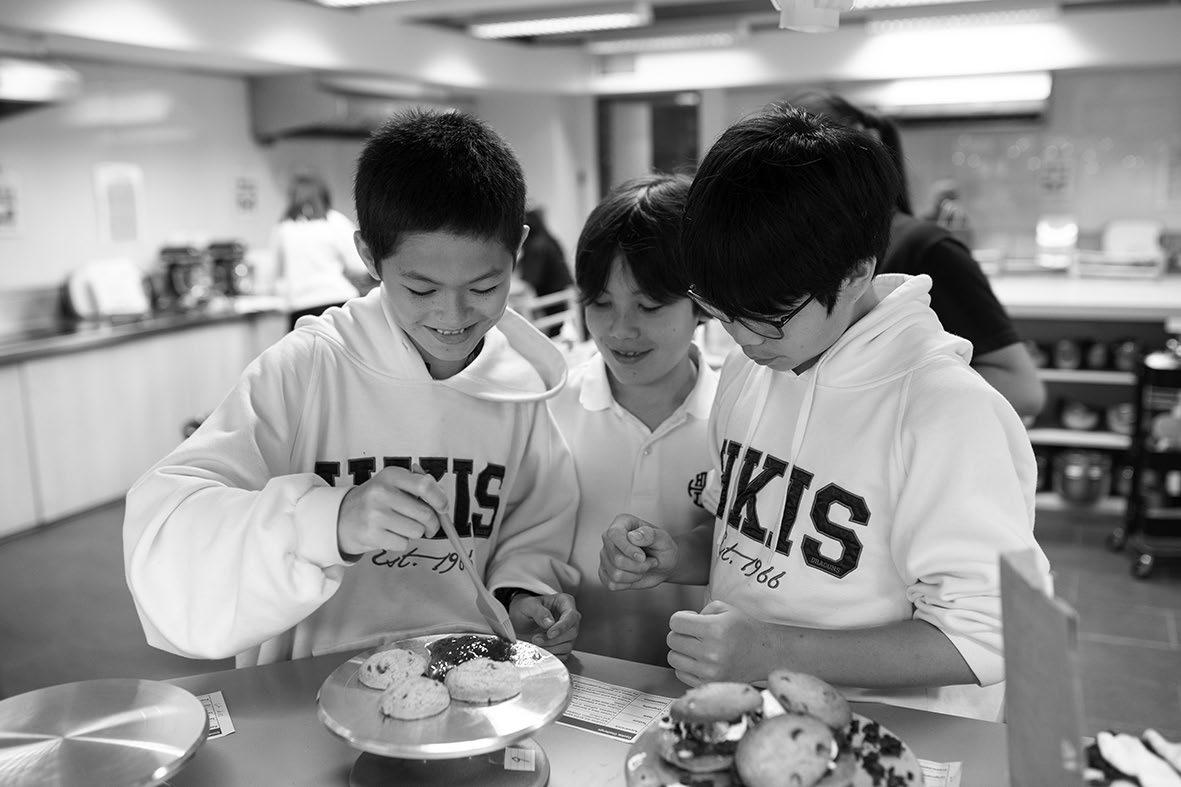
• Students will first receive a warning from the bus supervisor, who will inform the Middle School Leadership Team.
• Upon second warning, parents will be contacted.
• Repeated or severe offenses may result in a suspension or loss of bus privileges.
Depending on availability, students are allowed to ride buses other than their assigned bus with a valid bus card. This is to ensure tracking of students and preventing overloading.
NOTE: Students without a bus card are allowed to ride the bus subject to availability and have to pay $50.
The 5th floor Cafeteria and the 3rd floor Multipurpose Room eating space are operated by Sodexo and offer a wide range of meals and beverages. Students have a choice of daily lunch specials, noodle bar, salad bar, sandwiches and also a range of hot/cold snacks, fruits, health bars, dim sum, and bakery items. These spaces are open for students during the morning break (9:50-10:10) and during lunch (11:30-12:10). All items may be paid for using an Octopus card. You can top up your Octopus card in the 5th floor Cafeteria.
(Policy 3060, available on DragonNet.)
Our work with students and families emphasizes care and respect of individuals. This means working both proactively and reactively to foster and encourage healthy, wholesome lifestyles. Our natural extension of this philosophy is taking an institutional stand against any drug abuse and substance abuse generally.
The pressure and temptation on teenagers in Hong Kong to participate in the drug scene is well documented. HKIS has determined that, in providing our students with a safe and nurturing environment, zero tolerance of illegal drug use is critical, and that random testing can be a useful tool in deterring drug involvement.
The school’s contributions toward achieving that goal, in reference to illegal substance abuse as defined by HongKong law, include:
• Preventative education programs on substance abuse at all age levels
• School support of a student who requests help to overcome substance use, abuse, or dependency
• Education on the consequences under Hong Kong law and HKIS policy relating to possession, use, and facilitating use by others of illegal drugs
• A drug-use screening and detection procedure utilizing student hair samples conducted on a random basis
• Intervention when the school has reasonable cause to believe drug abuse has occurred
Students who possess or use illegal drugs, bring drugs to school or school activities, or facilitate drug use by others violate Hong Kong law and HKIS policy.
HKIS reserves the right to terminate the continuing enrollment of any student who violates HKIS policy on illegal drugs and substance abuse.
Implementation
1. As an annual requirement for enrollment, each student in Grades 6 -12 and his/her parent will read and sign a statement acknowledging their understanding and acceptance of the conditions of this policy.
2. The school reserves the right to inspect personal effects of students who are believed to be in possession of illegal or dangerous substances or paraphernalia. This will normally be done in the presence of the student affected.
3. Any students found to be in possession of any illegal substances (e.g., illegal drugs) or paraphernalia while on campus or at any school activity will be expelled, including the loss of credit for the semester in which the offense occurs. In those cases where drugs are found on campus, the school reserves the right to contact the Hong Kong police.
4. Any student determined to be facilitating the drug use of others will be expelled from school. Facilitation includes, but is not limited to: selling drugs; making drug purchases for someone else; transporting drugs for someone else; or providing information so others may buy drugs.
5. For the random testing component the school will:
• Cover the cost of the individual tests and program implementation
• Ensure through quality controls that any procedure involving a student is done in the least intrusive way possible with care, respect, and sensitivity.
• Train a designated administrative staff person to collect, process, and provide results of hair sampling.
• Randomly test on average four students per day in High School. Randomly test on average 20 students per month in Middle School
• Retest for accuracy any positive test whose results are disputed; consult a licensed medical review officer for resolution if necessary
• Require a student who tests positive to enter the intervention program
6. With reasonable cause, school personnel may call for a test (hair, urine and/or saliva) to assess drug use. This process is independent of the routine random sampling. When drug use is established, the student enters the intervention program.
The intervention program will include the following:
• Parents will be notified of the student’s test results, if positive (or when a student admits drug use to school personnel), and meet with a member of the Middle School administrative team and the student’s counselor.
• A student who accepts responsibility for his/her use and is open to counseling assistance, will be placed in the intervention program that will commence immediately and last for up to 12 months. (Note: regular drug testing will continue throughout the HKIS enrollment of any student who has a positive drug test and enters the intervention program).
• Should a student not initially choose to accept responsibility for his/her documented use, he/she will be suspended from school for up to 3 days to reconsider his/her decision. If after 3 days the student is still unwilling to take responsibility for his/her use, the student will be asked to leave HKIS.
• In certain cases, the school may determine that it is in the best interest of the student to leave HKIS after the first positive drug test, in order to receive immediate professional care. Upon completion of an in-depth counseling program, the student may apply for readmission to HKIS. The school’s decision on readmission will take into account the recommendation of those who have provided rehabilitation care, as well as the recommendation of the HKIS administrative and counseling personnel.
The intervention program will include the following elements:
• Regular sessions with the student’s HKIS school counselor
• When appropriate, a recommendation by the school that the student receive additional outside counseling/drug intervention support. School counselors will assist families in locating suitable intervention services and maintain contact with outside therapists. In order to remain in school, students in the intervention program and their parents must provide a signed release of information relating to such counseling, intervention or therapy.
• Periodic unannounced testing by the school to assist the student in avoiding continued drug use
• Loss of all free periods, and “come and go” privileges for a minimum of 6 weeks, at which time further assessment will take place to determine the return of privileges
• Loss of participation in school sponsored overseas travel for 2-4 academic quarters.
If at any point after the initial positive drug test result, the student tests positive for drugs again and the result indicates continued use (or admits to drug use), he/she may be asked to leave HKIS. This decision is at the school’s discretion and will allow the student to receive drug/alcohol abuse services beyond the expertise of HKIS personnel. If the school allows a student to remain in school following a second positive test, any subsequent positive test will result in the student’s expulsion from school.
Since the effects of alcohol and tobacco abuse are also harmful, HKIS is proactive in its care for students and prohibits the possession and/or use of alcohol, tobacco, or nicotine-delivering devices (e.g., vaping) on campus or at any school-sponsored event.
First Offense: Parent conference will be arranged; assessment on the extent of the problem and recommendations; student may be placed on disciplinary warning with consequences of loss of unsupervised periods and HKIS overseas travel for 2-4 academic quarters.
Second Offense: Parent conference; may include suspension; student is placed on probation along with its consequences as appropriate.
Third Offense: If a student uses or possesses a prohibited substance school suspension results; conference to determine if the student can remain at HKIS.
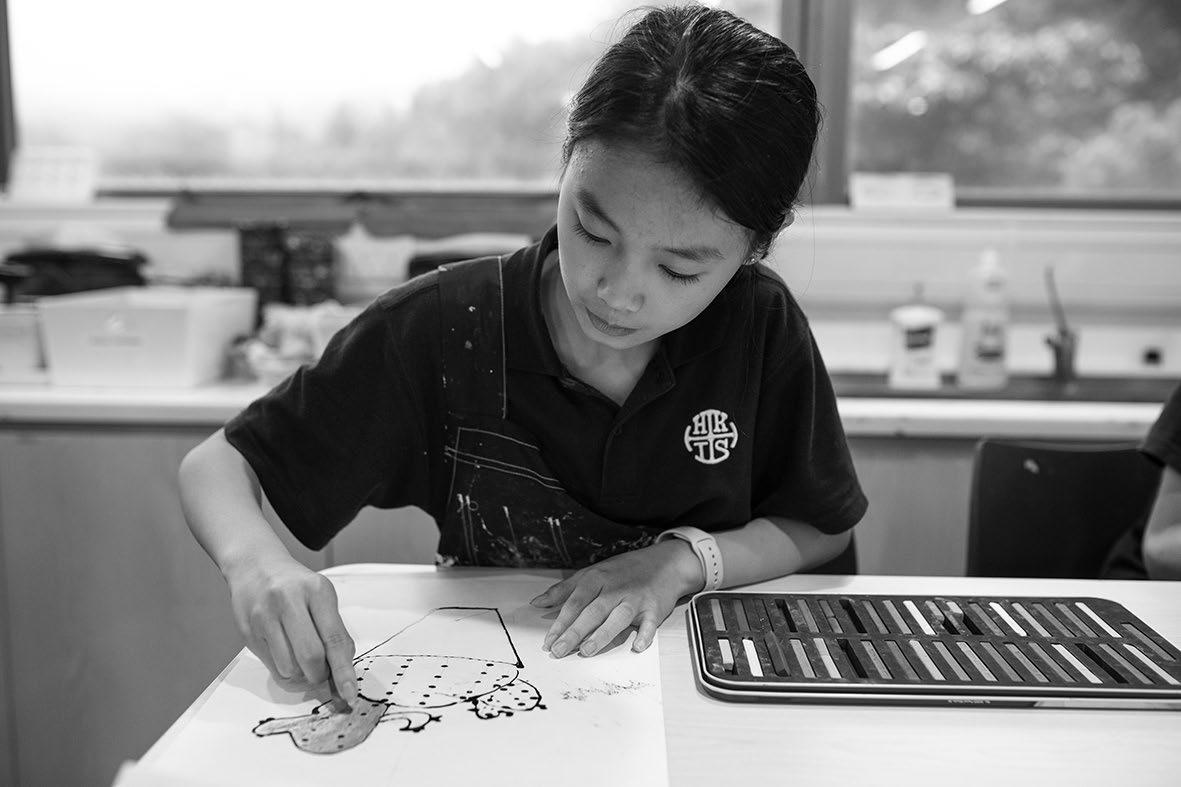
Special Provision for Please note that alcohol violations which occur on overseas trips will result Overseas Travel: in a student’s suspension from school until the student’s enrollment status is reviewed and a determination of extended suspension or expulsion is made.
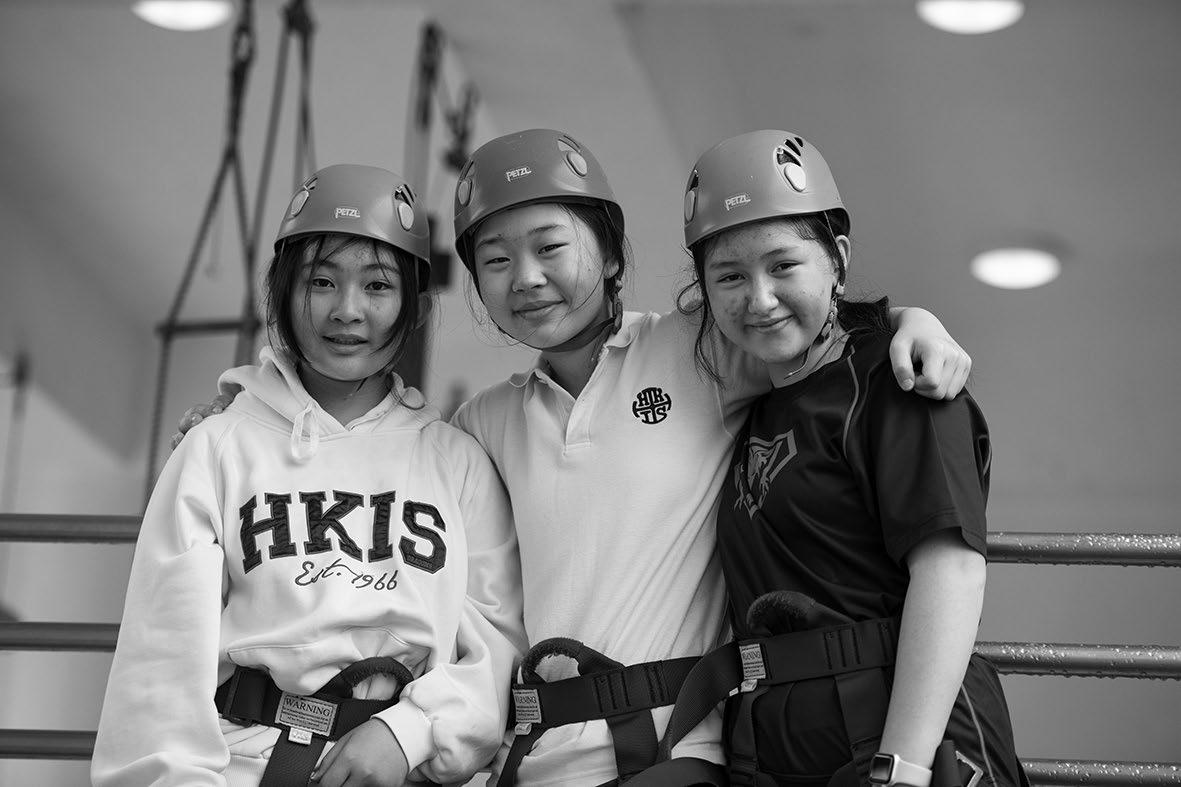
Hong Kong weather can be extreme and this sometimes requires that we modify our school schedules. As always, parents are advised to use their best judgment in determining whether to send their children to school whenever the weather is inclement or road conditions make travel to school unwise. The Education Bureau makes a decision before 6 a.m. on such mornings and distributes this information to the media. Under normal circumstances HKIS follows the Government’s recommendation and will not contact parents directly. Parents are responsible for checking DragonNet for any announcements.
What we do when the signal is raised before school starts:
Typhoon 1
All R1-12 classes are in session.
Typhoon 2 R1 classes are cancelled. R2-12 classes are in session.
Typhoon 8 and above
The campus is closed – all classes will take place in Home Learning.
Amber Rainstorm All R1-12 classes are in session.
Red Rainstorm The campus is closed – all classes will take place in Home Learning.
Black Rainstorm The campus is closed – all classes will take place in Home Learning.
Please note there are times when localized weather conditions on the south side of the island are very different from territory-wide predictions. In circumstances where HKIS needs to take action that is different from the Government’s recommendation, we will contact parents as early as possible and place an announcement on DragonNet. If the signal is raised on the way to school parents should decide whether it is safer to return home or continue to school. Generally speaking, HKIS will wait for an official announcement from Hong Kong’s Education Bureau before notifying the community about school closures (due to bad weather or health considerations such as flu outbreaks). On occasion, these announcements take time to come out, and, in that time, some news outlets and community members try to anticipate whether the Education Bureau will close schools or not. Please rest assured that HKIS will contact parents and employees with news of any closure once official word has been received.
When a typhoon or rainstorm signal is raised during school hours: At times a typhoon increases in intensity or a rainstorm signal is raised while the children are at school. If this happens, we will use the following procedures:
Typhoon 1
Typhoon 3
Typhoon 8 and above
All R1-12 classes will remain in session with regular dismissal times.
All R1-12 classes will remain in session with regular dismissal times
All R1-12 classes will be dismissed. (The notice of typhoon 8 signal being raised is given to schools several hours before it is actually hoisted, thus allowing schools enough time to make arrangements to get students home safely.)
Amber Rainstorm All R1-12 classes will remain in session with regular dismissal times.
Red Rainstorm All R1-12 classes will remain in session AND* students will remain in school until conditions are safe for them to return home.
Black Rainstorm All R1-12 classes will remain in session AND* students will remain in school until conditions are safe for them to return home.
* This means students will not be released until the warning has been removed and buses are authorized for safe travel, which could be after 3 p.m. Please note that the HK government strongly advises everyone to stay indoors during a Black Rainstorm warning. Driving yourself or sending someone to pick up your child during a Black Rainstorm signal is extremely dangerous and not advisable. If Red/Black rain signal is after 3:05 p.m. then students report to MS Cafeteria.
Note: In the case of a Typhoon 8 signal when we must dismiss the children prior to the end of the regular school day, parents will be contacted with the approximate new dismissal time. It is critical that you discuss with your family and your helper the new arrival time and determine who will be waiting at the bus stop for your child. If your child regularly walks home or is picked up by car, please be prepared to come immediately to school and pick up your child at the normal meeting place.
Buses will run and complete their routes if school is in session or when students are on board. Any variation to the regular schedule will be the decision of the bus company in consultation with the school administration.
For information regarding weather conditions, we recommend the following sources: www.weather.gov.hk & www.edb.gov.hk
Hong Kong Observatory: 187-8200 (Press 1 for Cantonese, 2 for Mandarin, 3 for English)
RTHK – Radio 3: FM 97.9 (Central and environs) OR FM 106.8 (Southern Hong Kong Island)
Our Middle School Library is a welcoming learning space with a generous collection of curated young adult books. Staffed by a teacher librarian and library assistants who are happy to help students, our library ensures access to a variety of fiction and nonfiction books as well as to an abundance of online resources that enrich reading and research. Students are encouraged to visit and enjoy the library on their own during the school day and to look forward to frequent visits with their classes as well.
Hours: 7:30 am – 4:00 pm except on Thursday when the library closes at 3:15 pm
Loans: All MS students may borrow six library books, not including required textbooks, for two weeks. After two weeks, students may renew any book.
Our IT team is here to help you. The help center has loaner Macbooks and chargers. The help center can also assist you with resetting passwords or accessing digital subscriptions.
Students are responsible for all personal items. They are also responsible for any loss or damage to clothing, equipment, books and/or instruments. The school encourages families to check the lost and found box outside the MS Office and MS Gym if items are missing.
Reminders:
• Leave all valuables at home, including expensive electronics, large sums of money, etc.
• Keep school bags in your locker.
• Mark all belongings with your name.
• A Lost and Found box is located outside the MS Office.
• Clothes are also put in the drawers to the left of the gym entrance. Items that are not collected by the end of the semester will be donated to charity.
• Report any missing items to the Student Services Center.
• Return any found items to the Student Services Center.
• If you forget an article on the bus, please call the bus company directly and let them know the day and bus number (2578-1178). Students can also go to the Student Services Center for assistance.
The HKIS Booster Club is a parent-run volunteer organization whose mission is to support athletics, extracurricular activities, spread school spirit and maintain the Dragon Shop. The Dragon Shop is your one stop shop for uniforms, school supplies and HKIS themed spirit gear. All profits generated from our Dragon Shop sales return back to our school community in the form of grants and support to our Dragon athletics, arts, student clubs, special projects and spirit events. The money you spend at the Dragon Shop helps fund multiple and diverse initiatives across all four divisions at HKIS, as our way to ensure that your support helps enhance the educational experiences of all students.
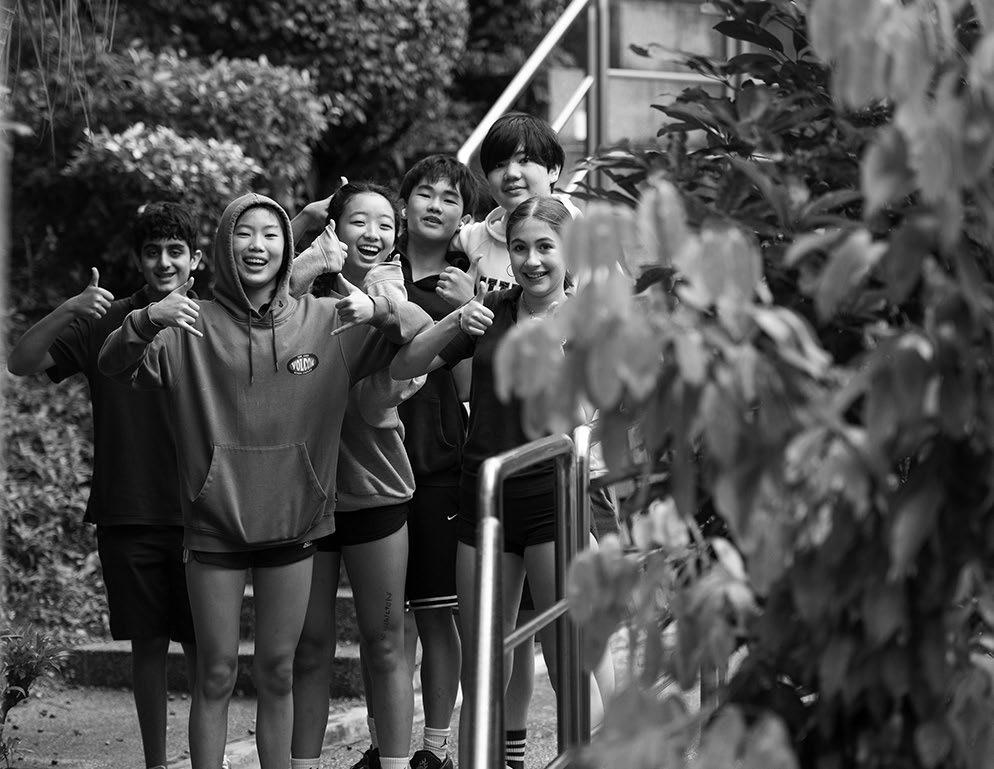
All parents in our community can shop at the Dragon Shop by visiting our store, in person or online, to purchase school uniforms, spirit gear, gift items and school supplies. With the help of over 60 parent volunteers, the Dragon shop sells all HKIS uniforms for Lower Primary, Upper Primary, Middle School and physical education. Our parent shop volunteers are trained to help you find the perfect fit and ensure you have everything you need for the start of school. Our shop is located on the 2nd Floor of the High School Campus at 1 Redhill Road, Tai Tam, across from the High School Cafeteria. For your convenience, we are also available online at https://hkis-dragon-shop.myshopify.com, and you can now also find our uniform sample racks at the Lower and Upper Primary offices with a QR code for easy access link to our online store.
Please visit https://www.hkis.edu.hk/community/booster-club/dragon-shop to find the HKIS uniform requirements by division and the Booster Club’s Dragon Shop hour.
If you would like to volunteer during Booster Club events or at the Dragon Shop, please visit our website at https://www.hkis.edu.hk/community/booster-club/welcome-boosterclub.
Dedicating our minds to inquiry, our hearts to compassion, and our lives to service and global understanding
An American-style education grounded in the Christian faith and respecting the spiritual lives of all
HKIS will be a leading place of learning that inspires a socially engaged community of collaborative, creative, and resilient learners dedicated to realizing their full potential.
Academic Excellence
Students will achieve their intellectual potential by striving for and attaining the highest standards of academic excellence.
Spirituality
Students will understand and respect Christianity and other religions and will identify and develop their own spiritual identity.
Character Development
Students will demonstrate respectful and caring attitudes at school and in the community, as well as the courage to stand up for what is right.
Students willingly apply a variety of learning and motivation strategies throughout their learning process.
Students will develop the skills they need to form genuine relationships in our diverse society and to make contributions to our community.
Chinese Culture
Students will gain an understanding of China and an appreciation of the Chinese Culture.